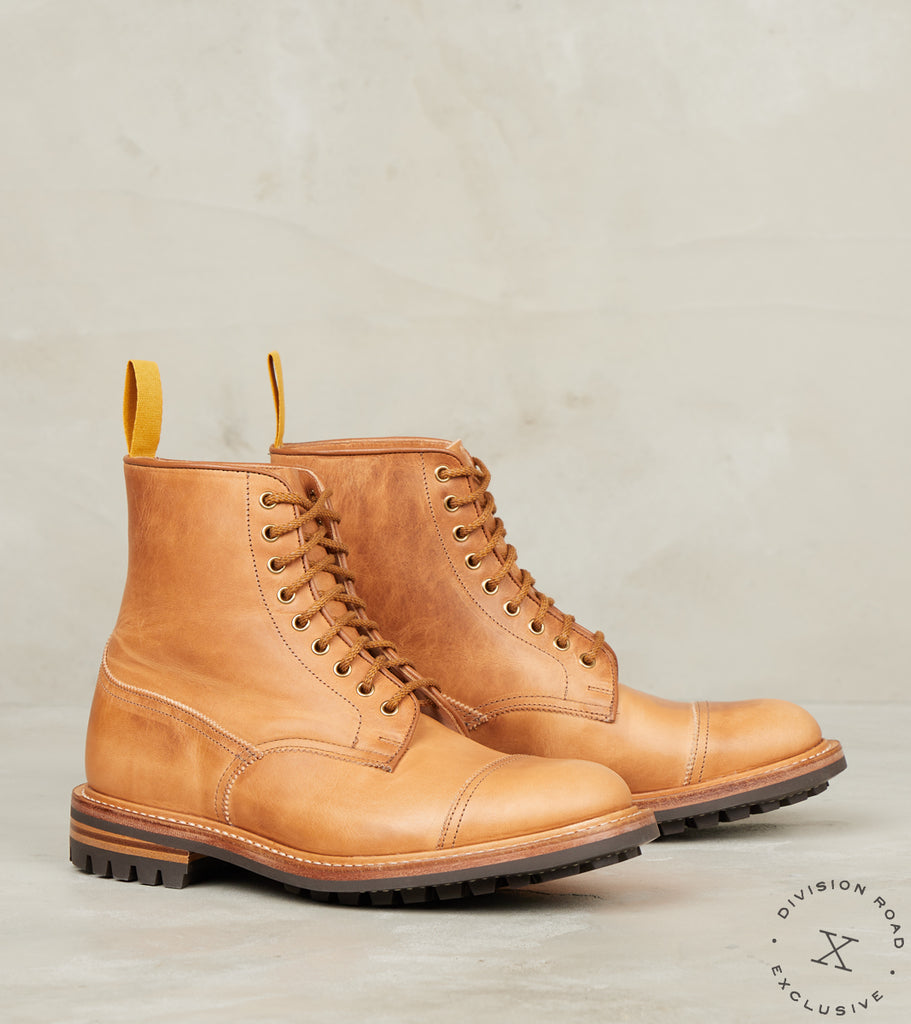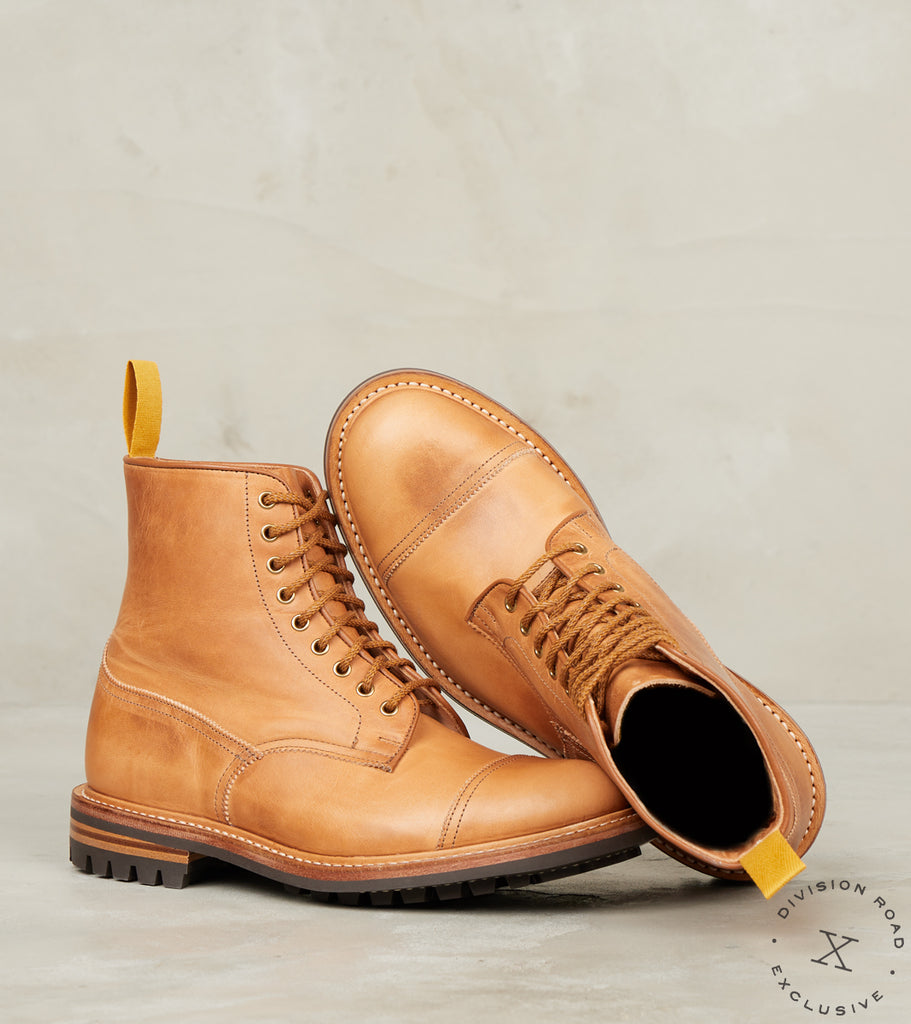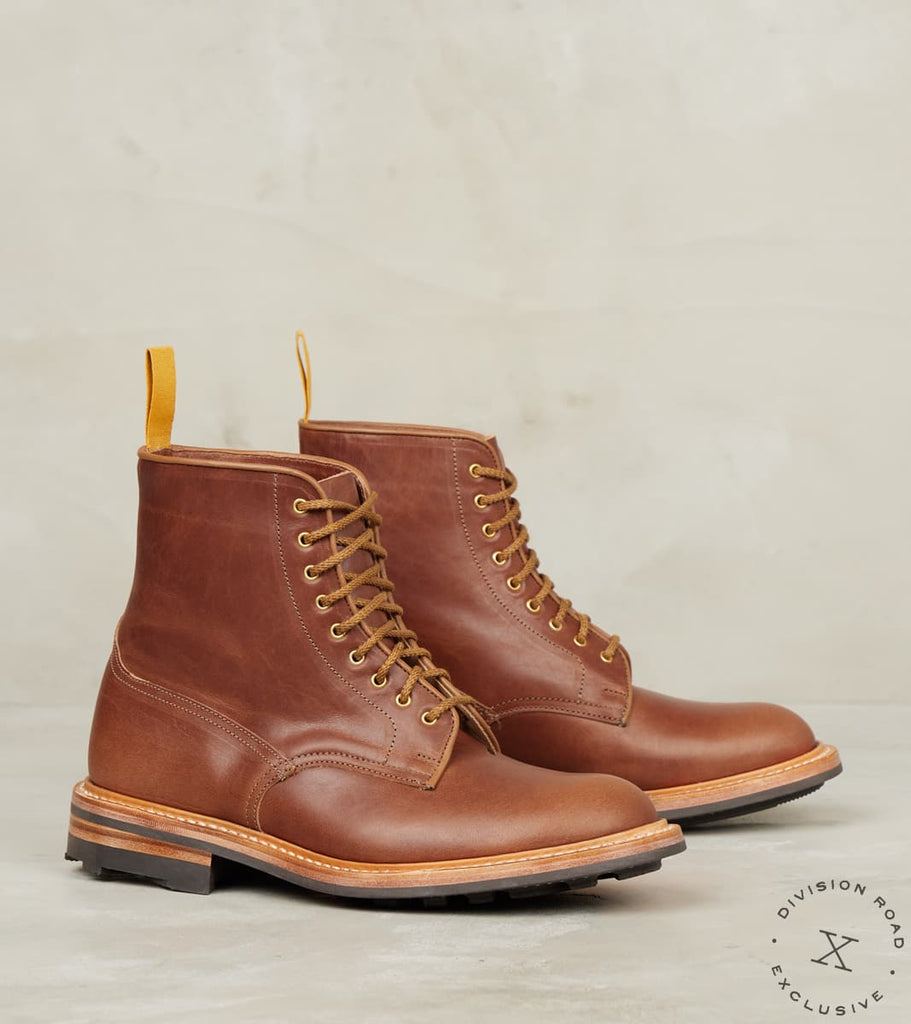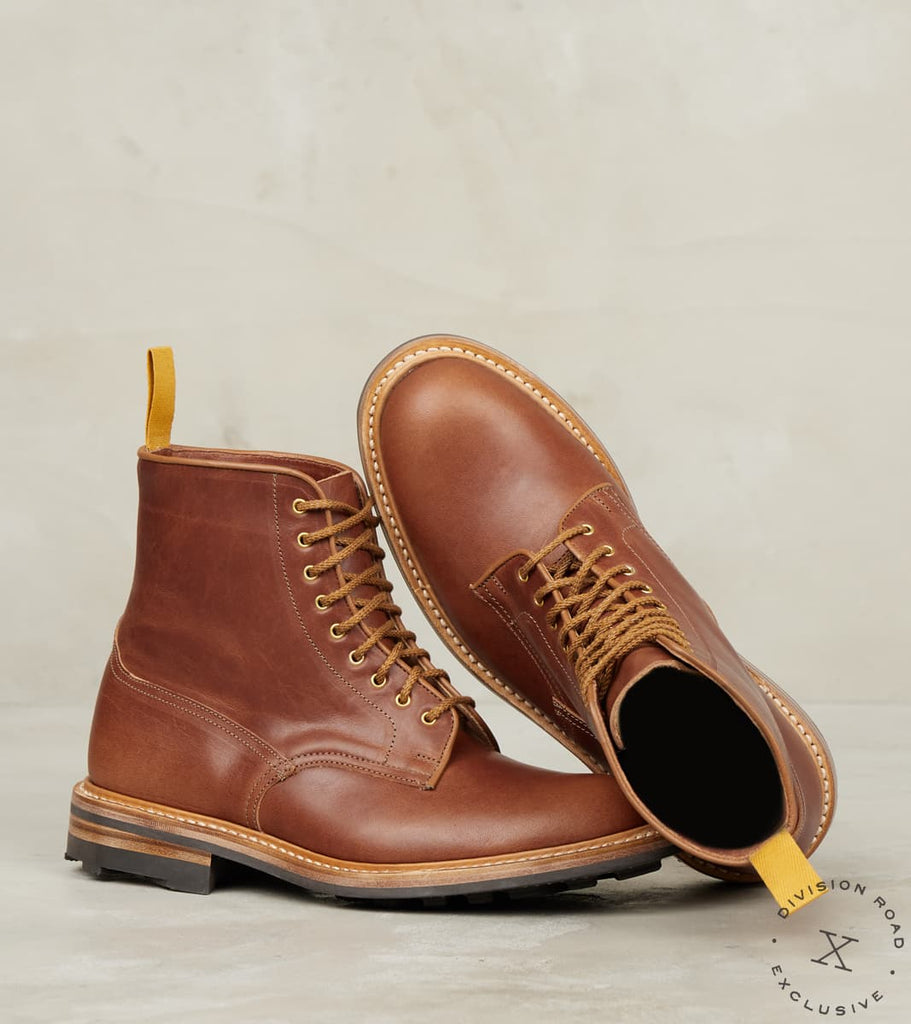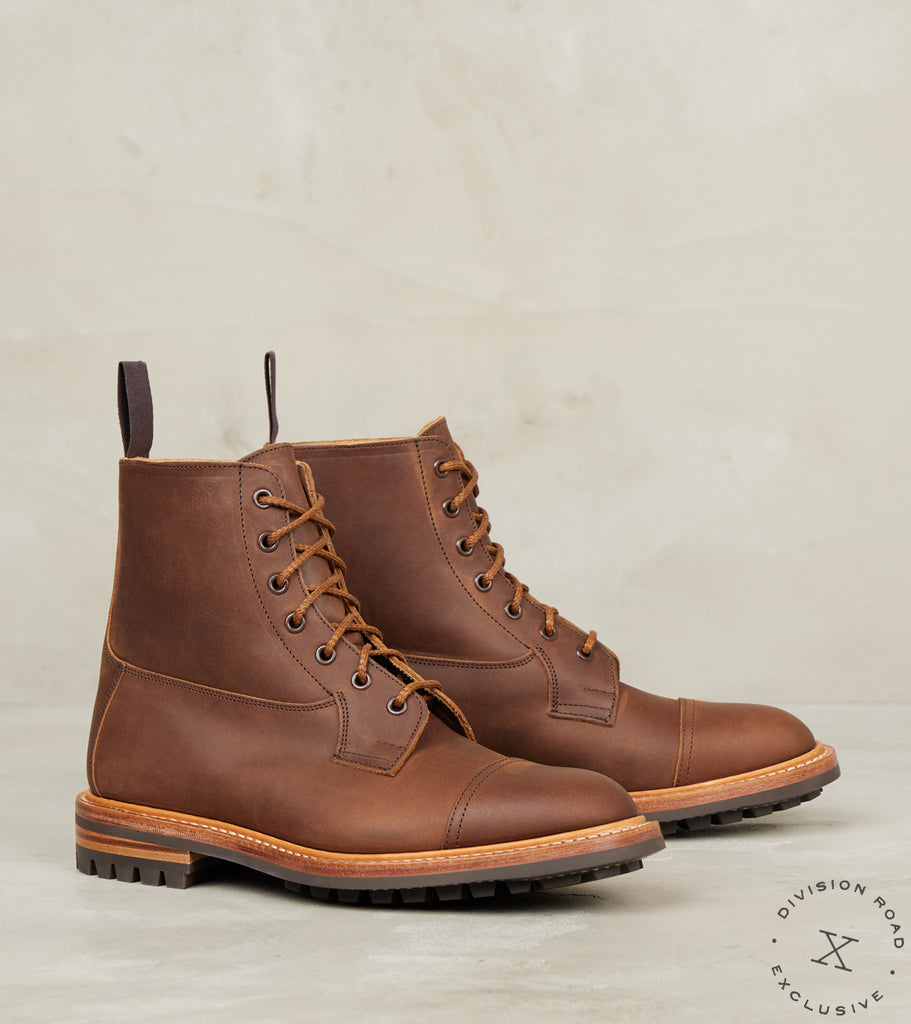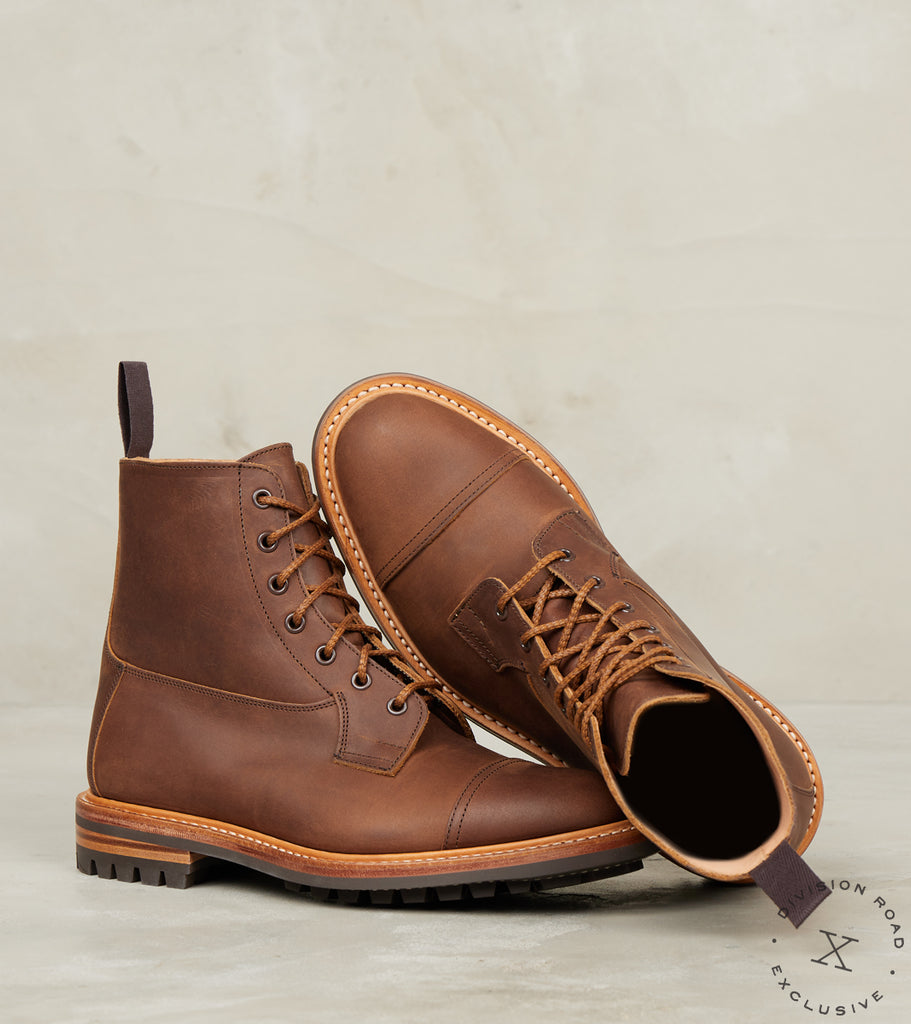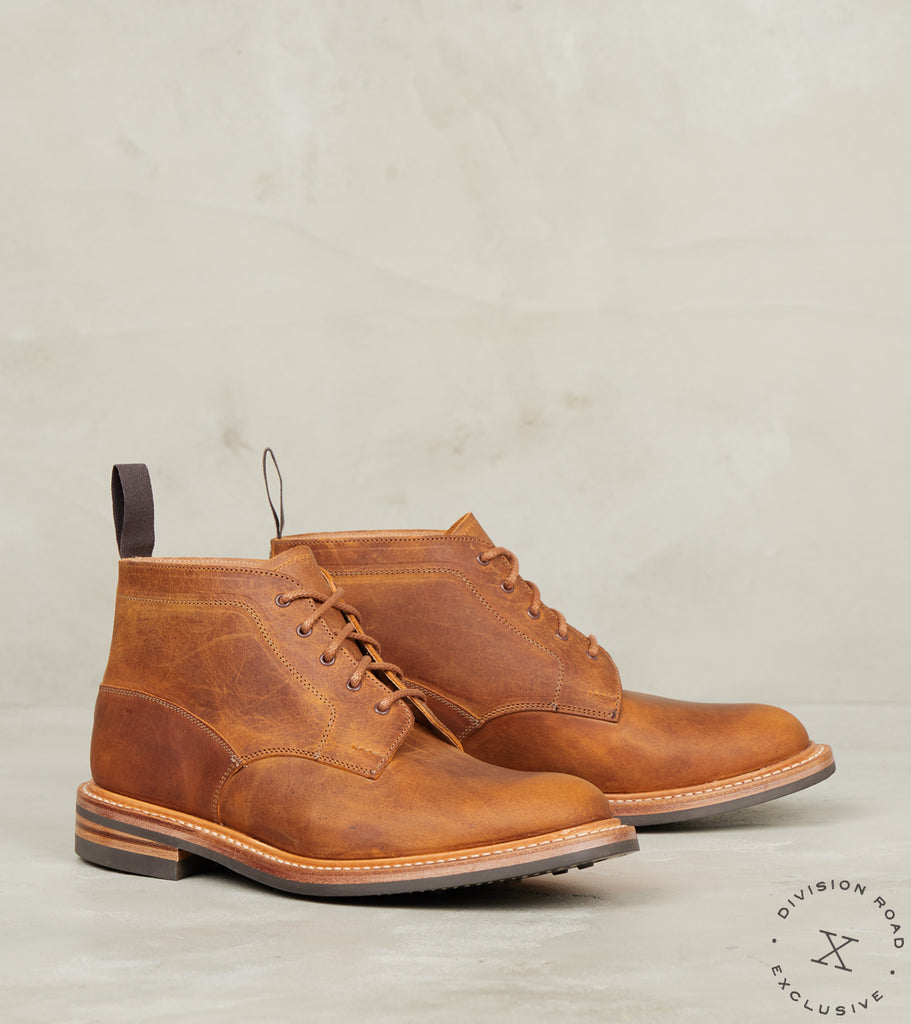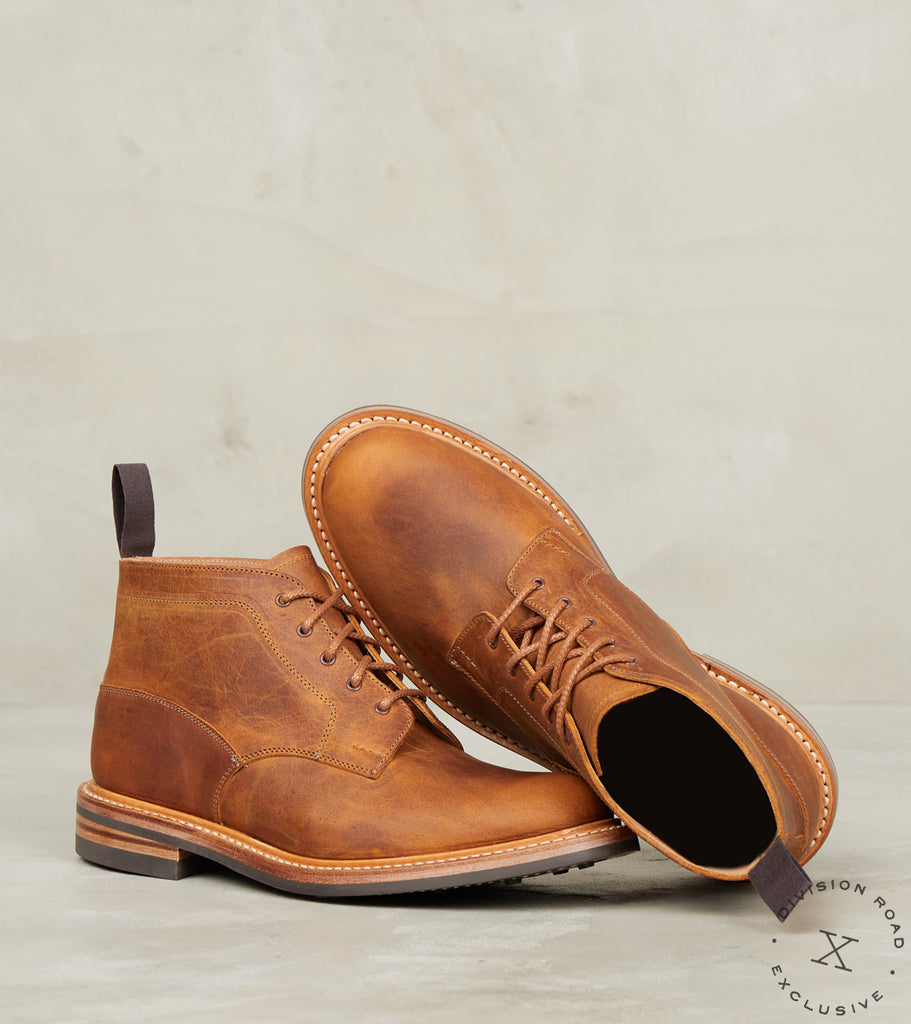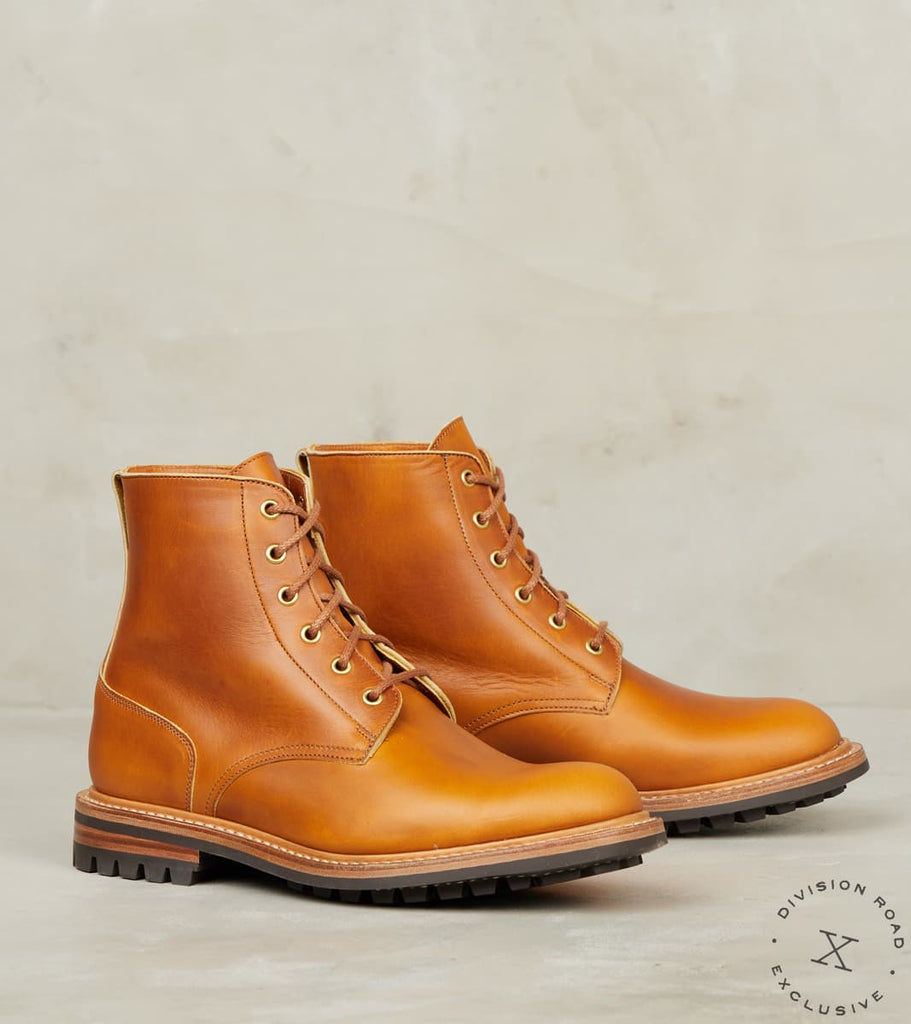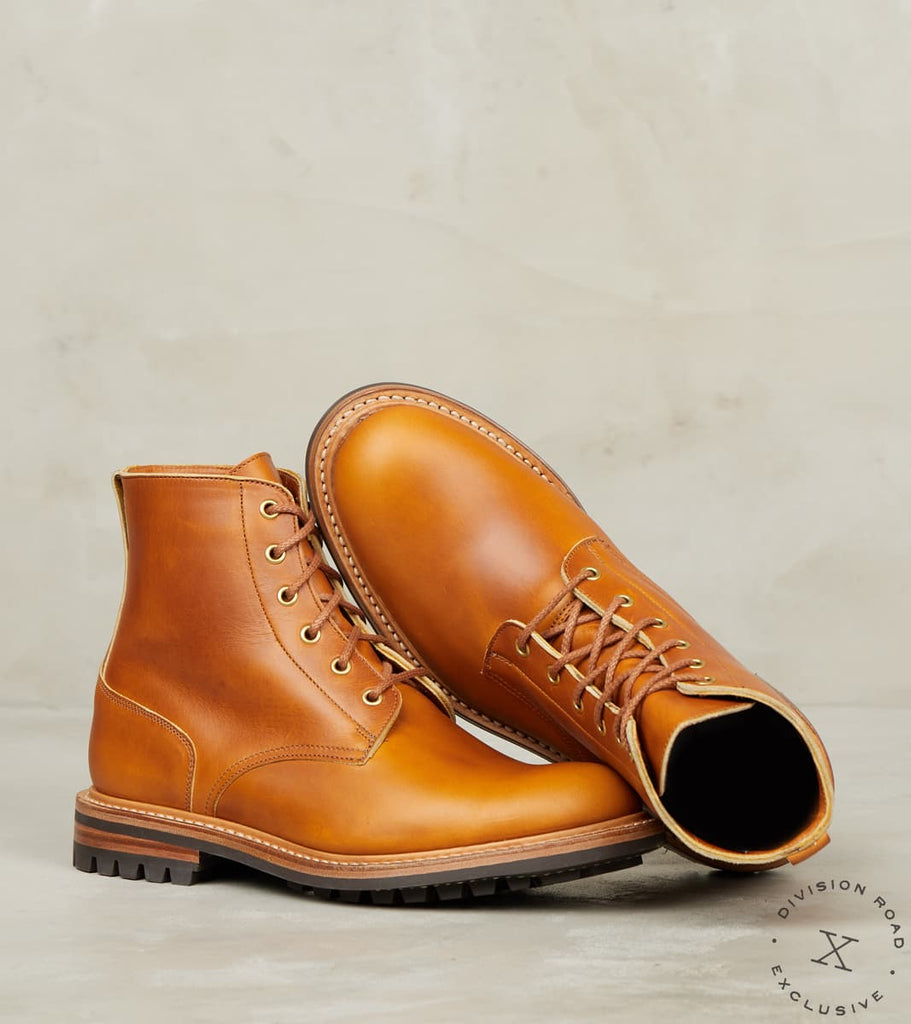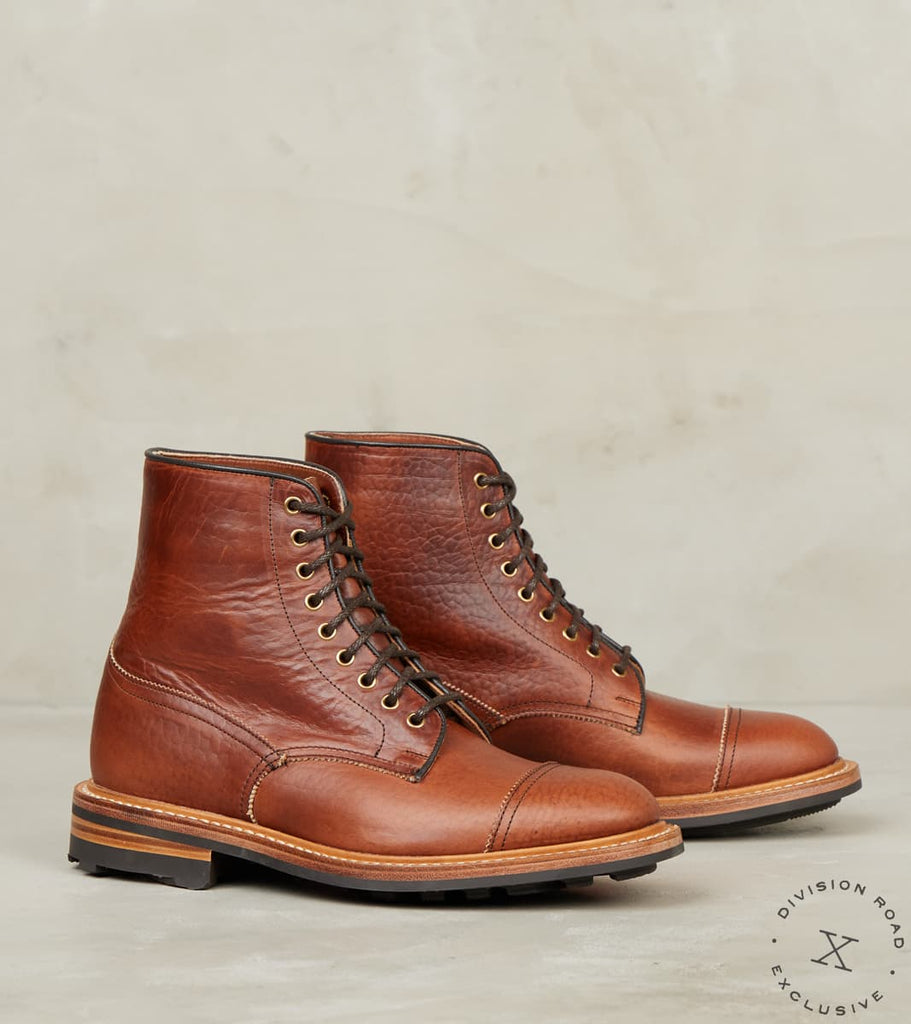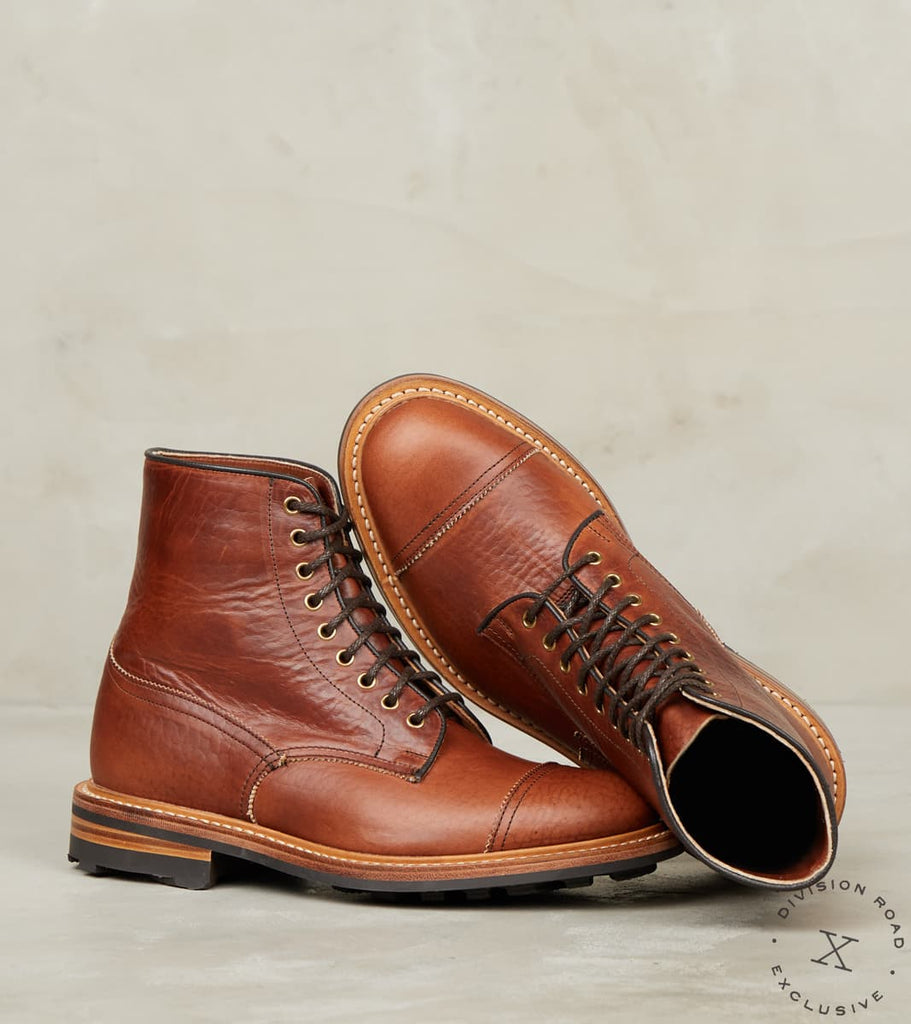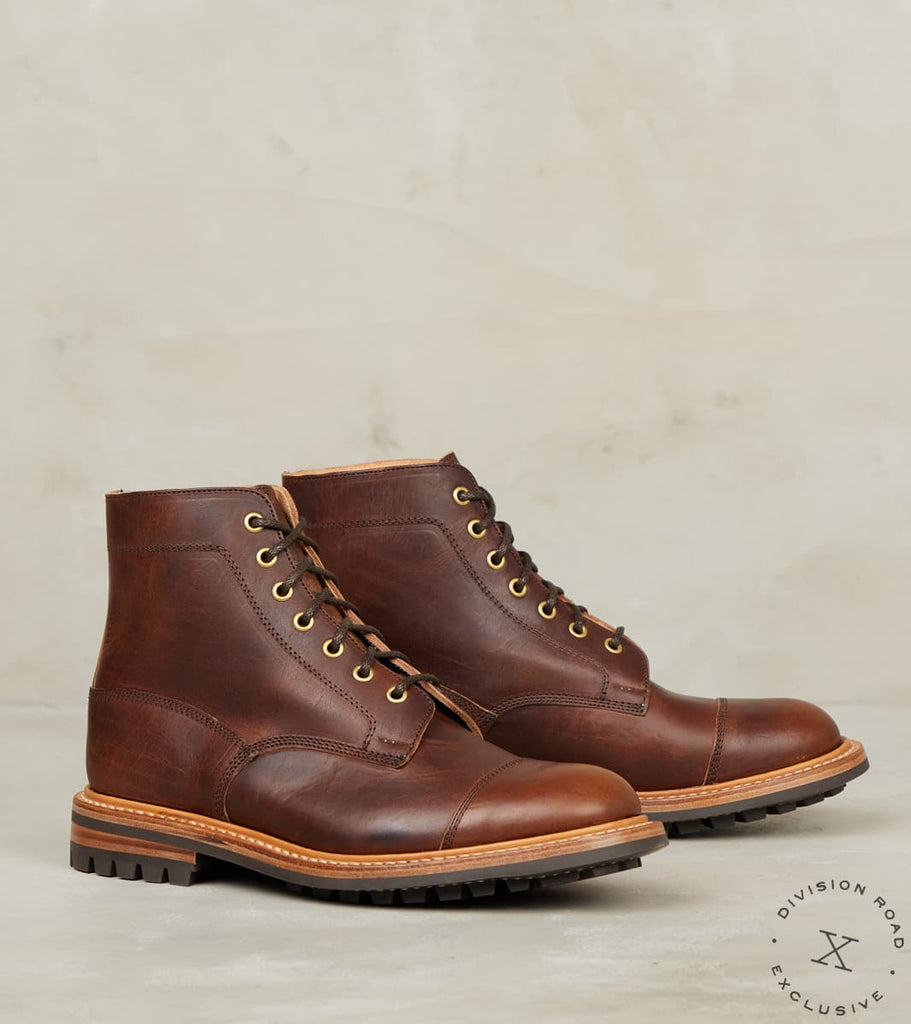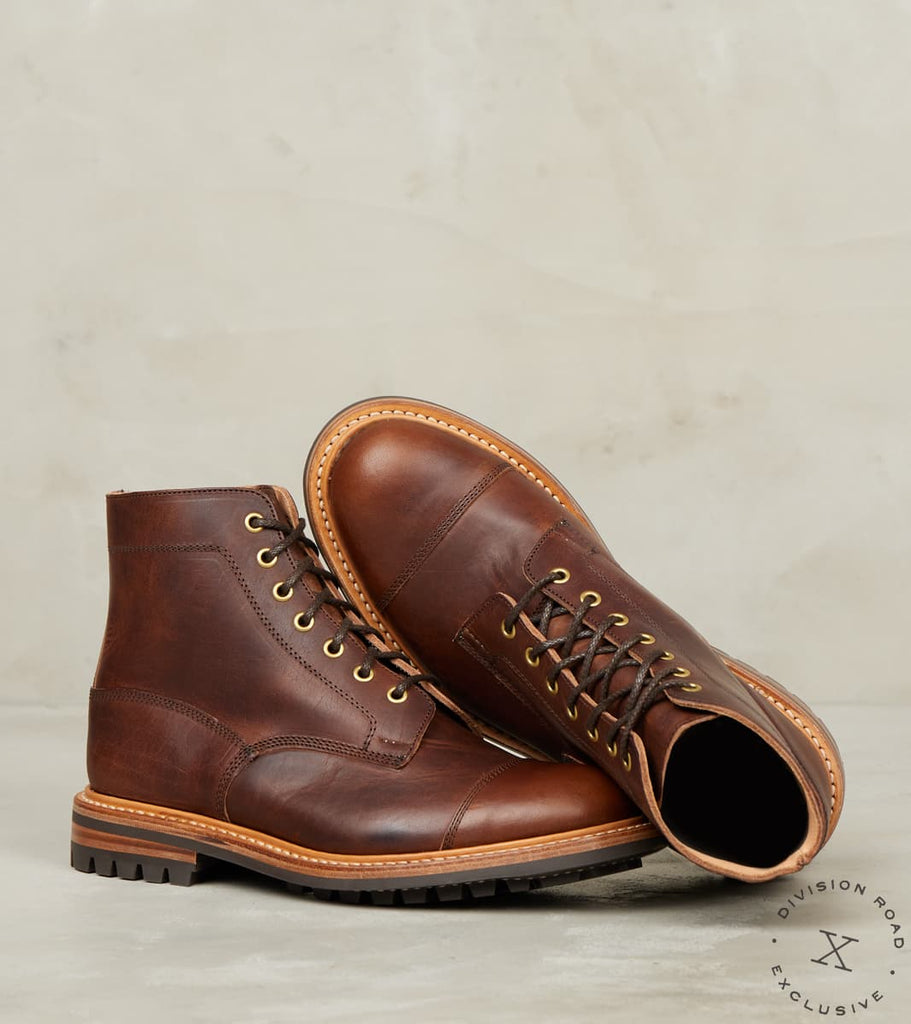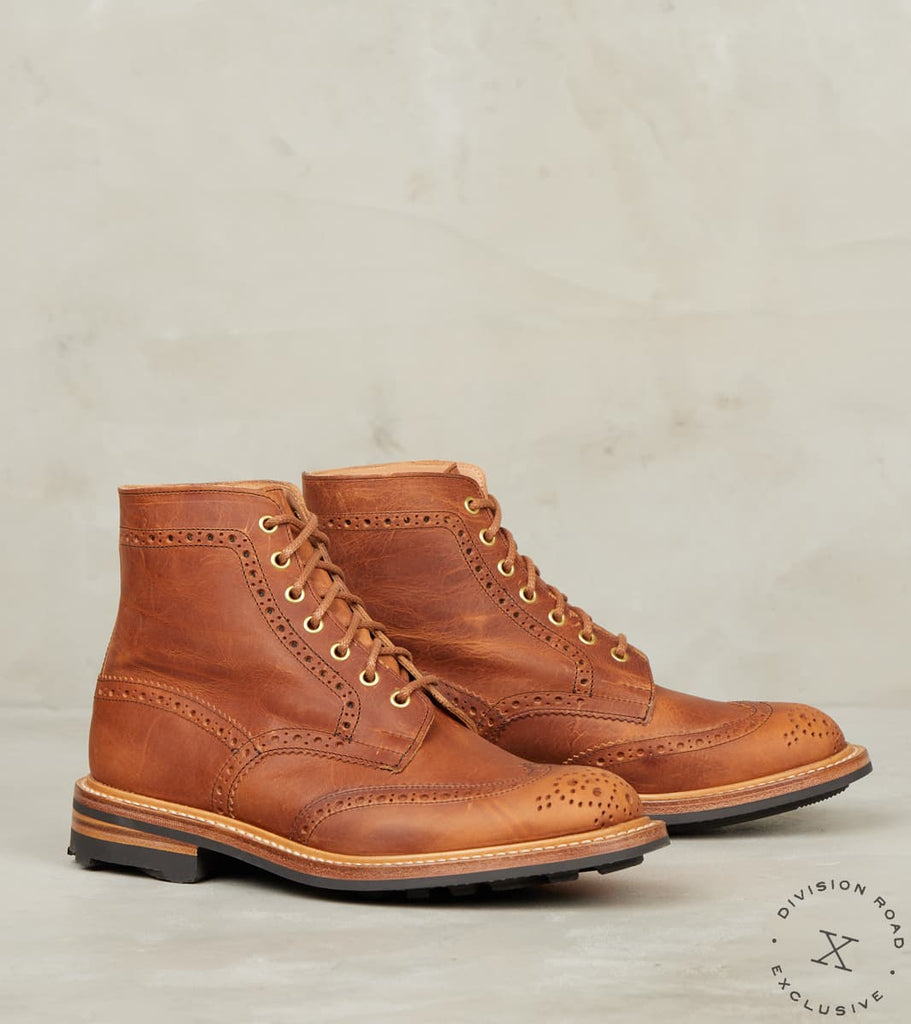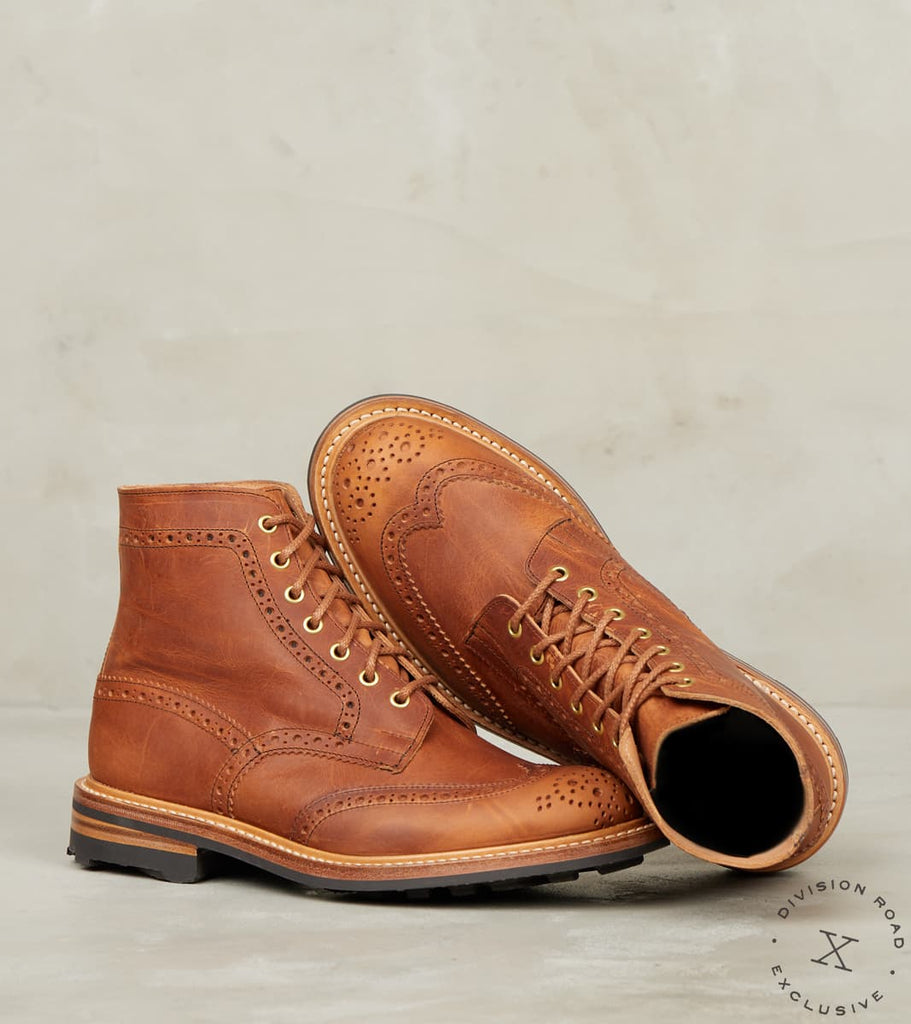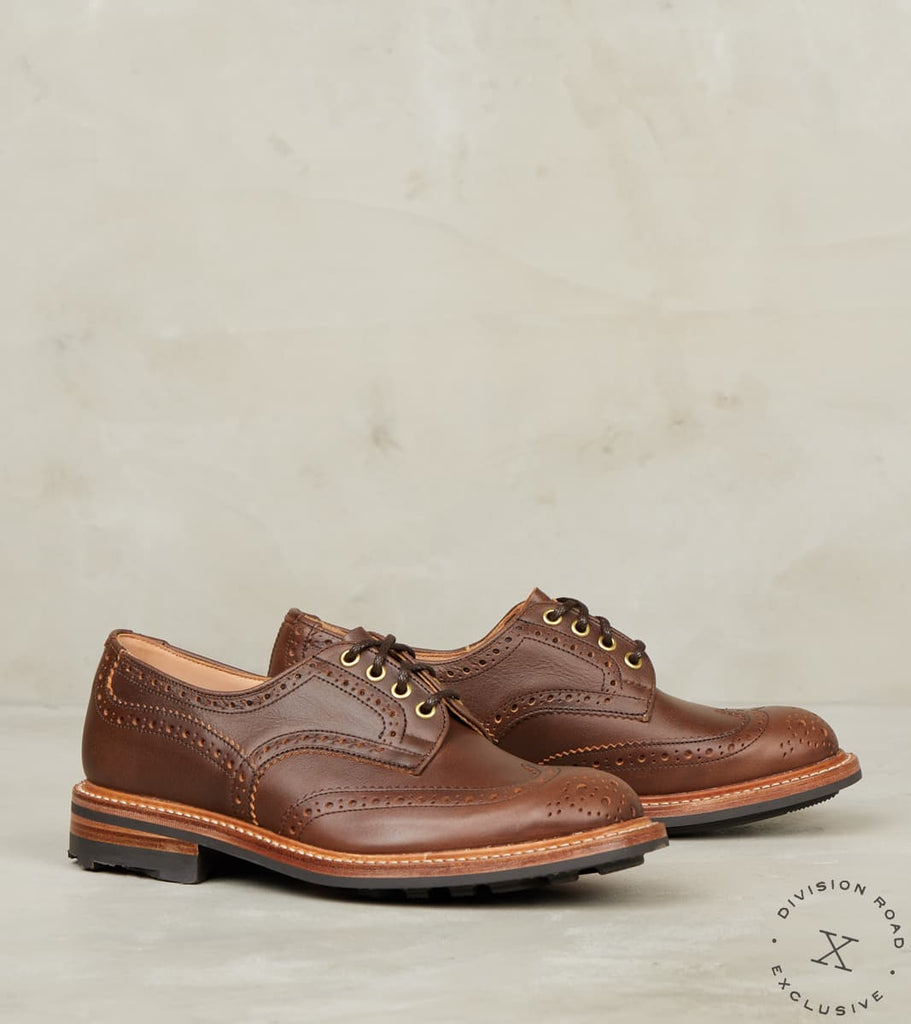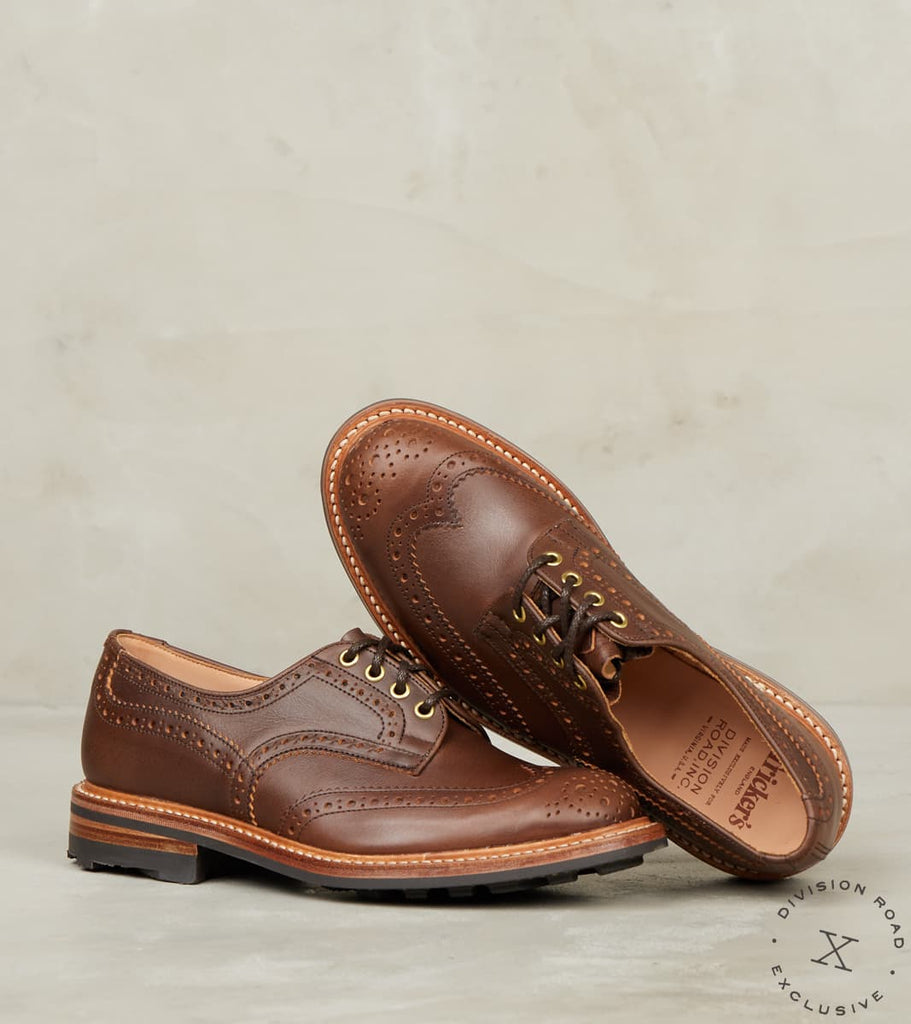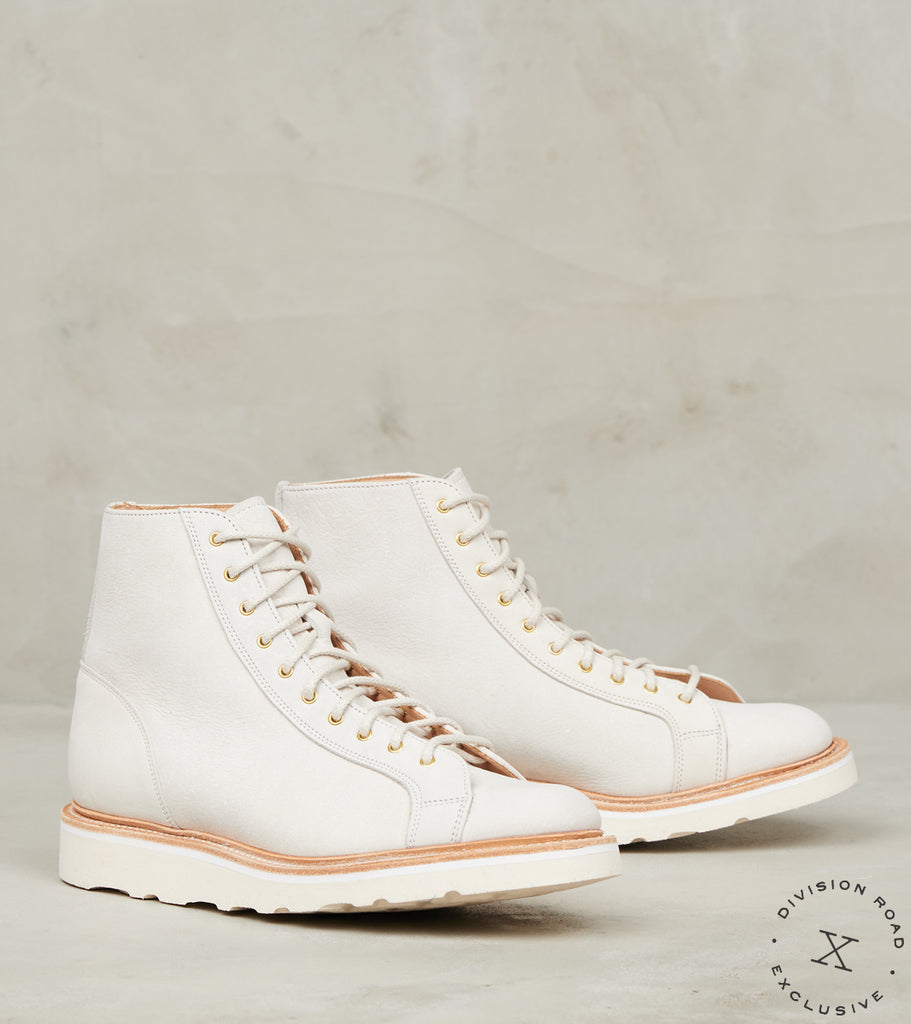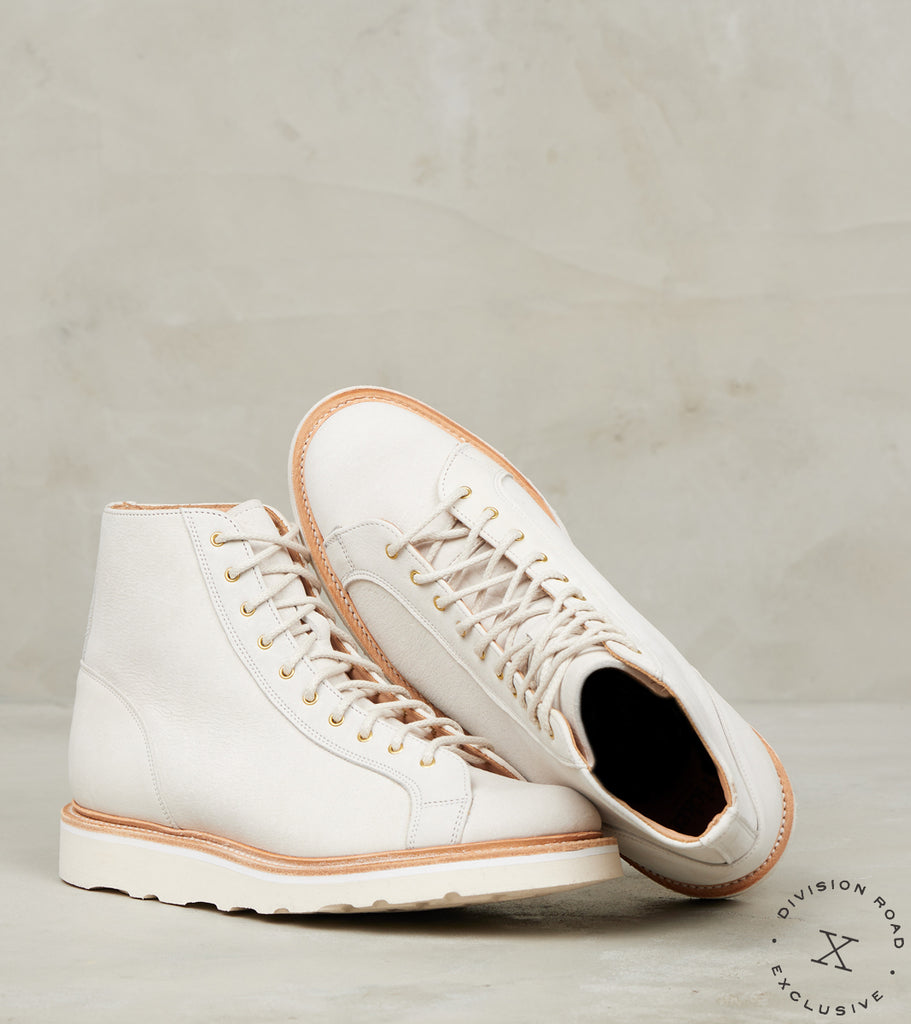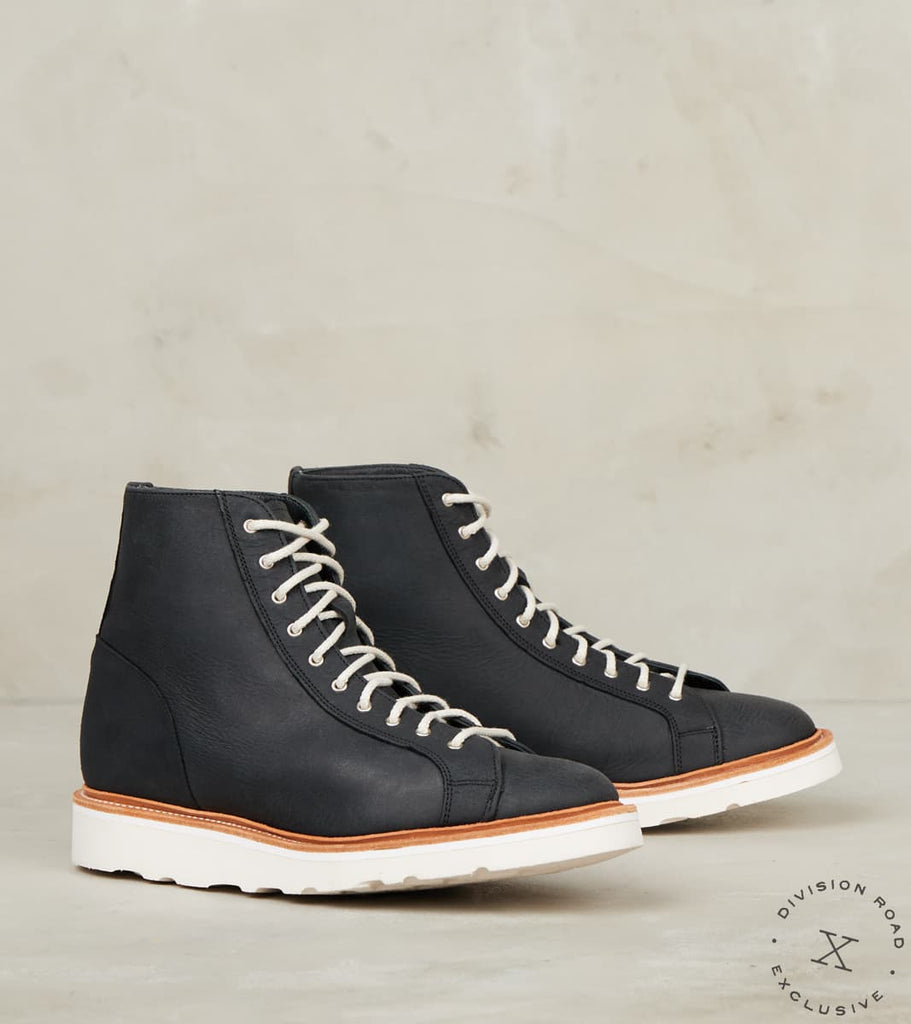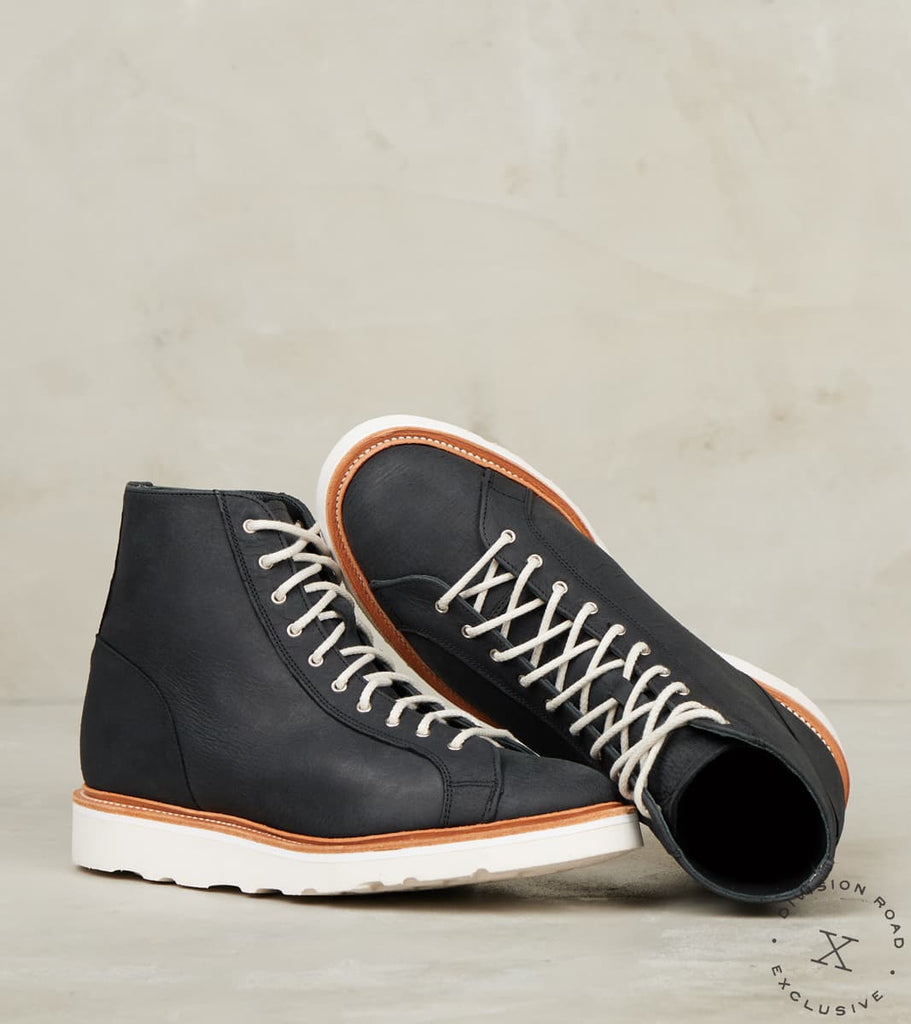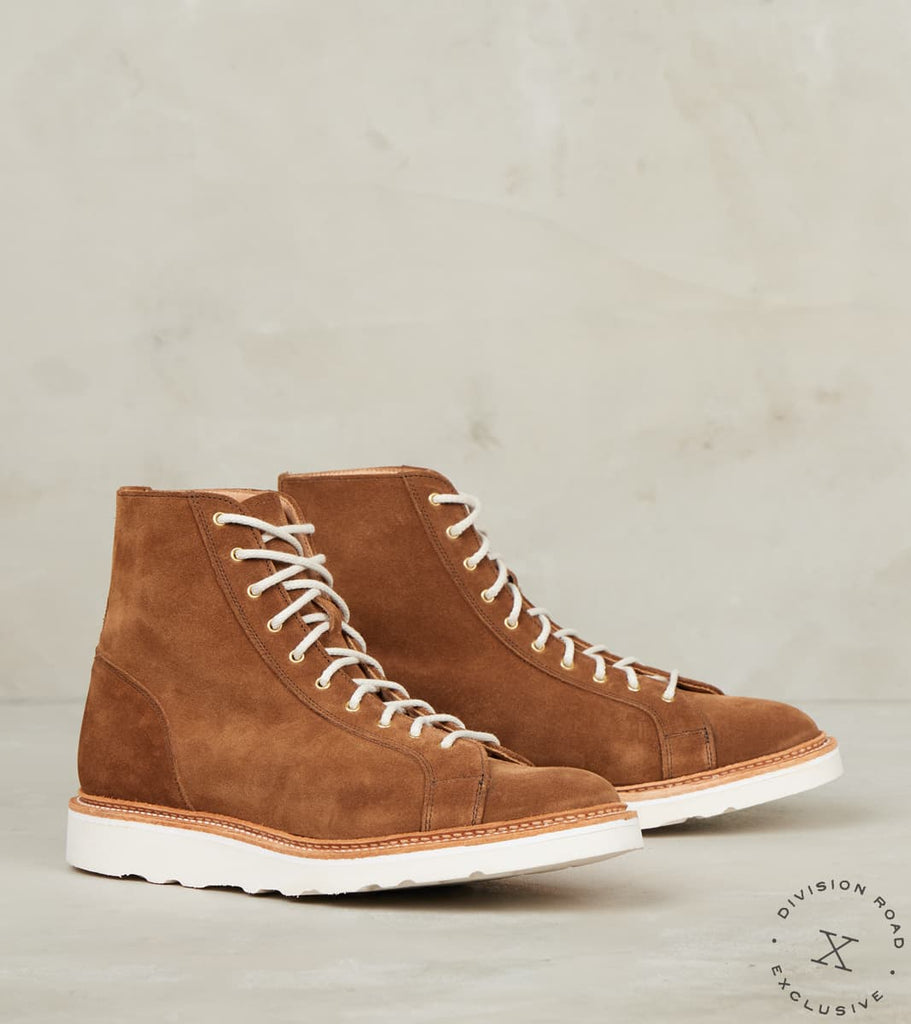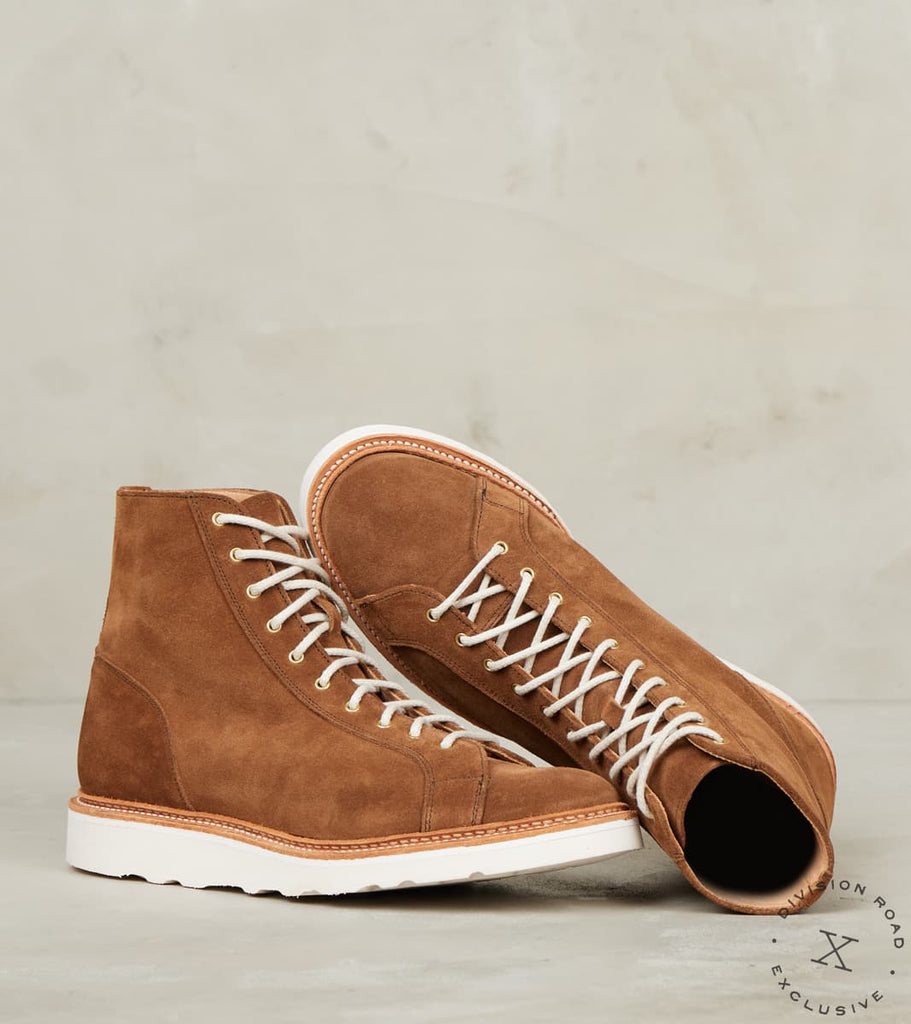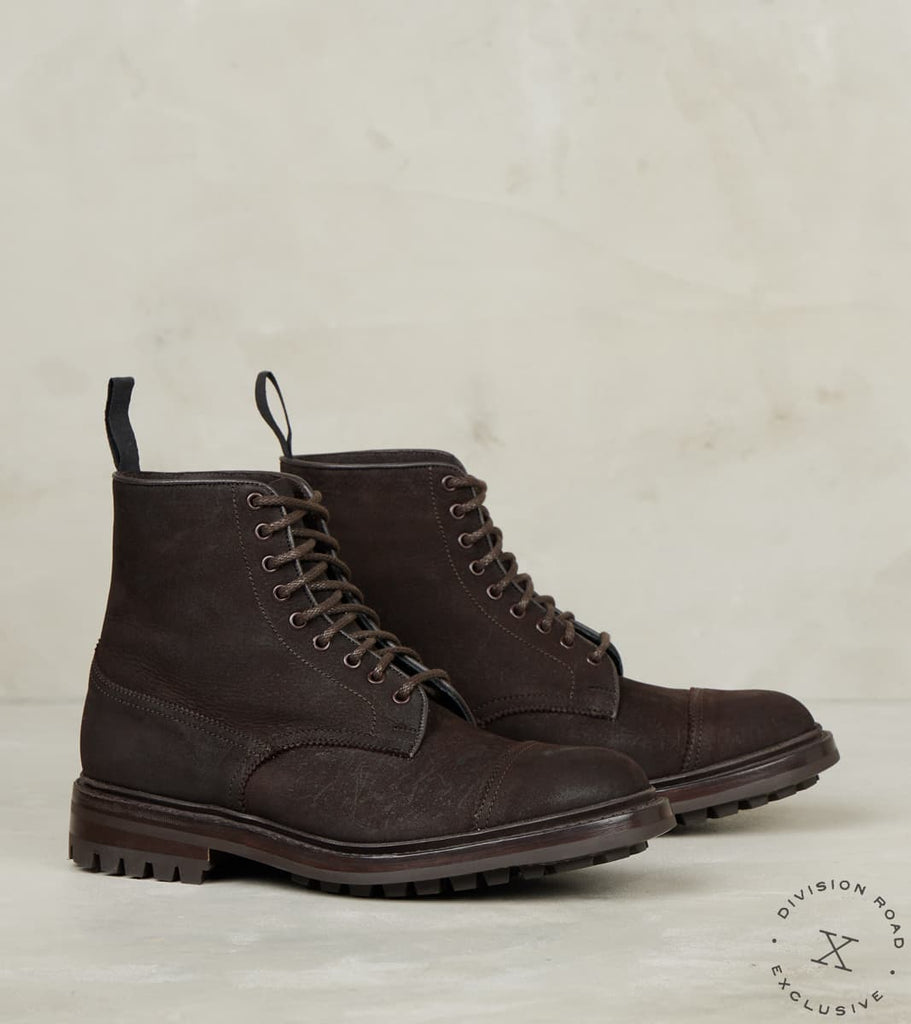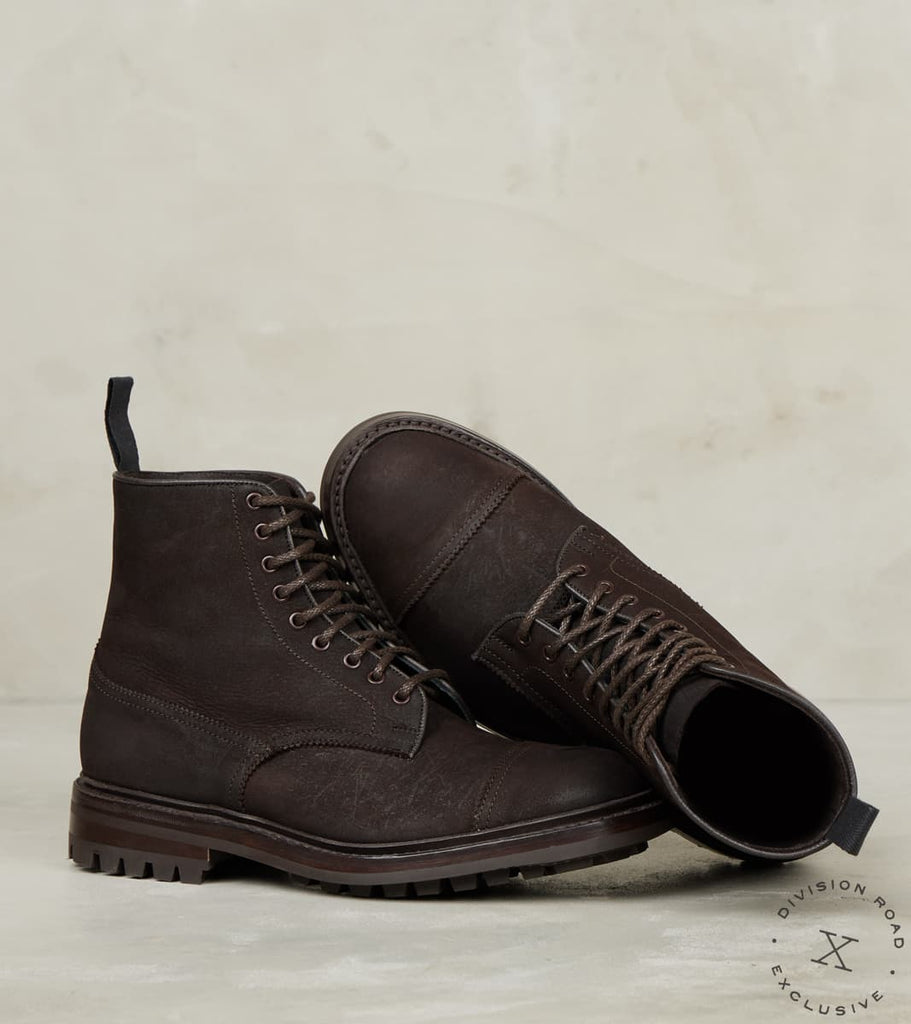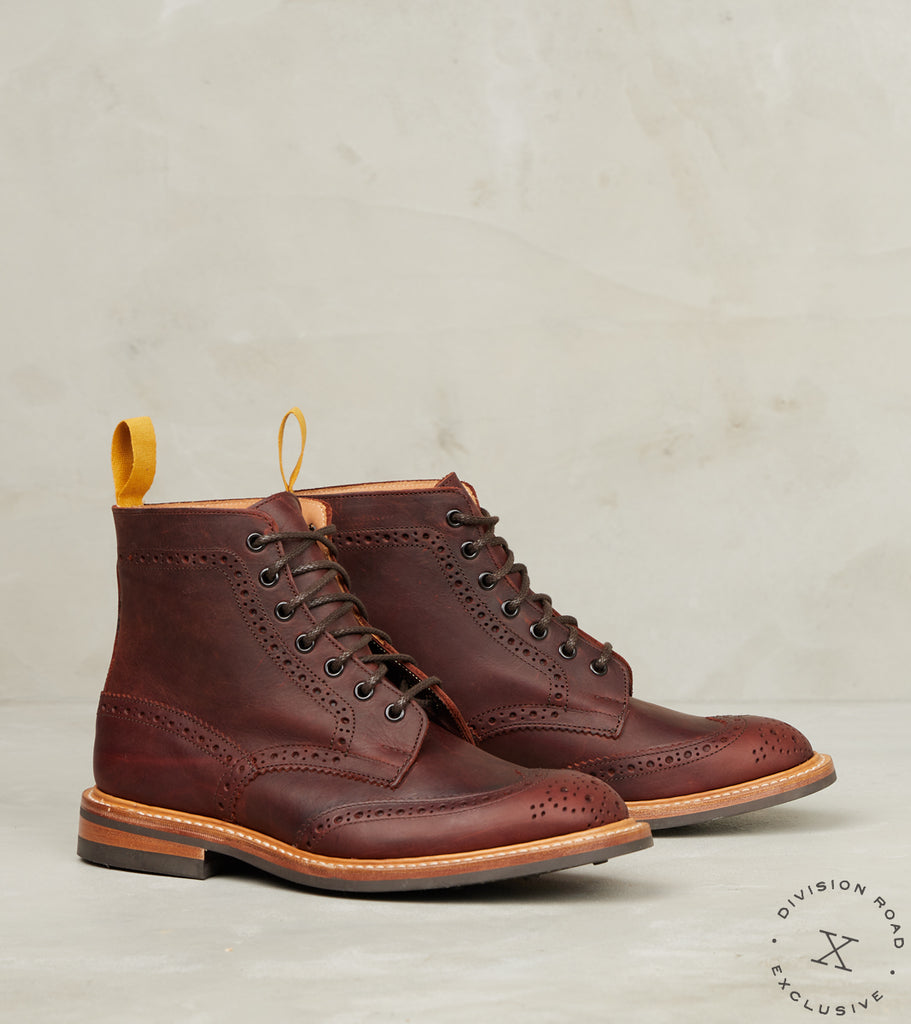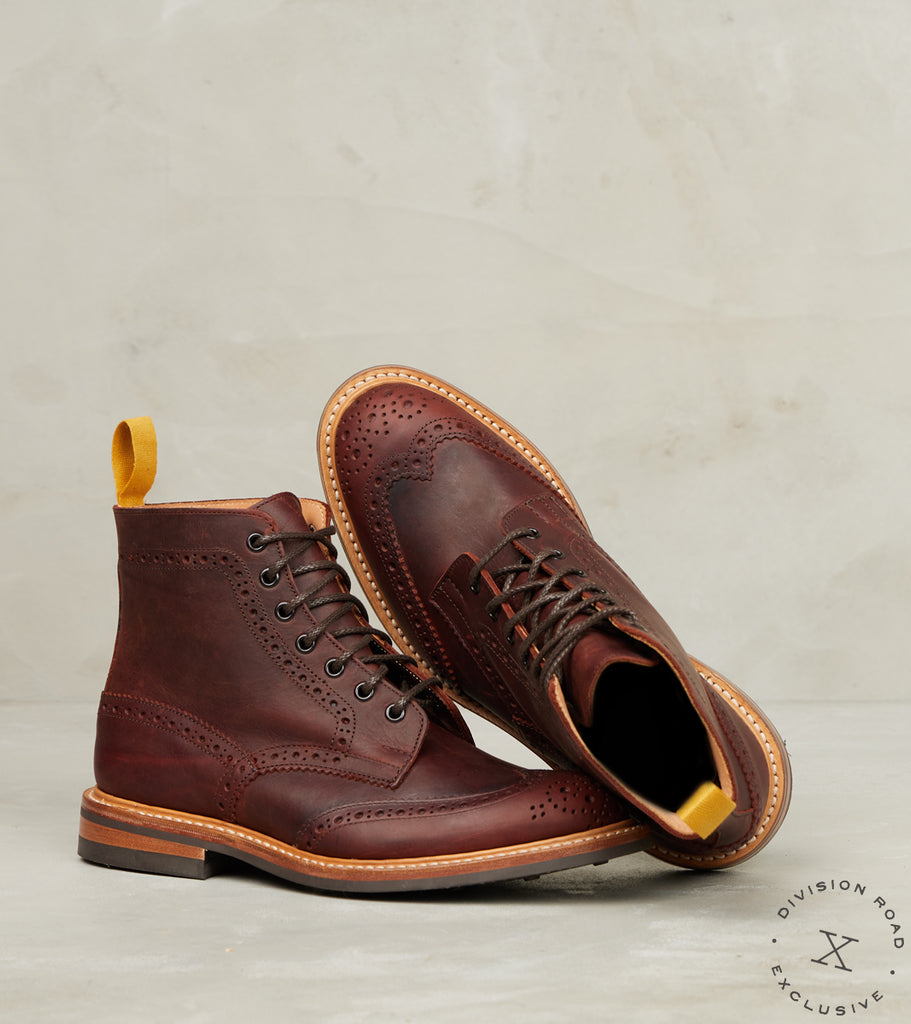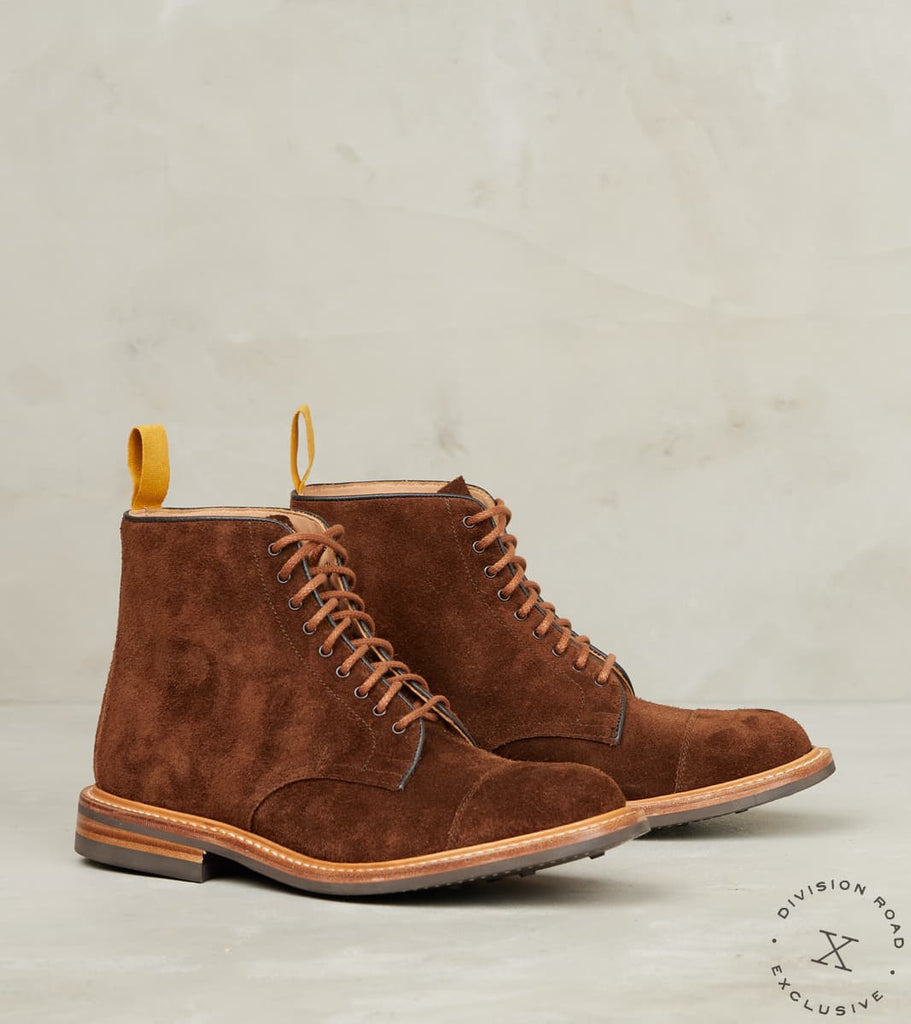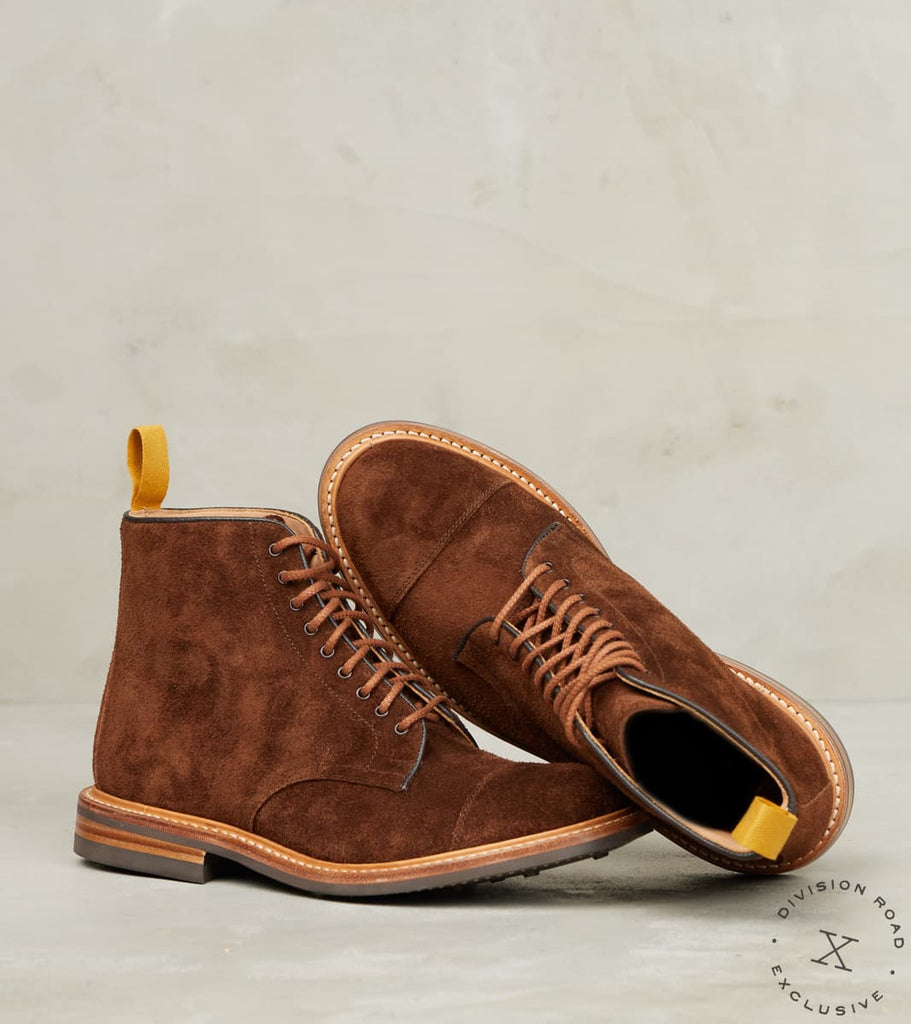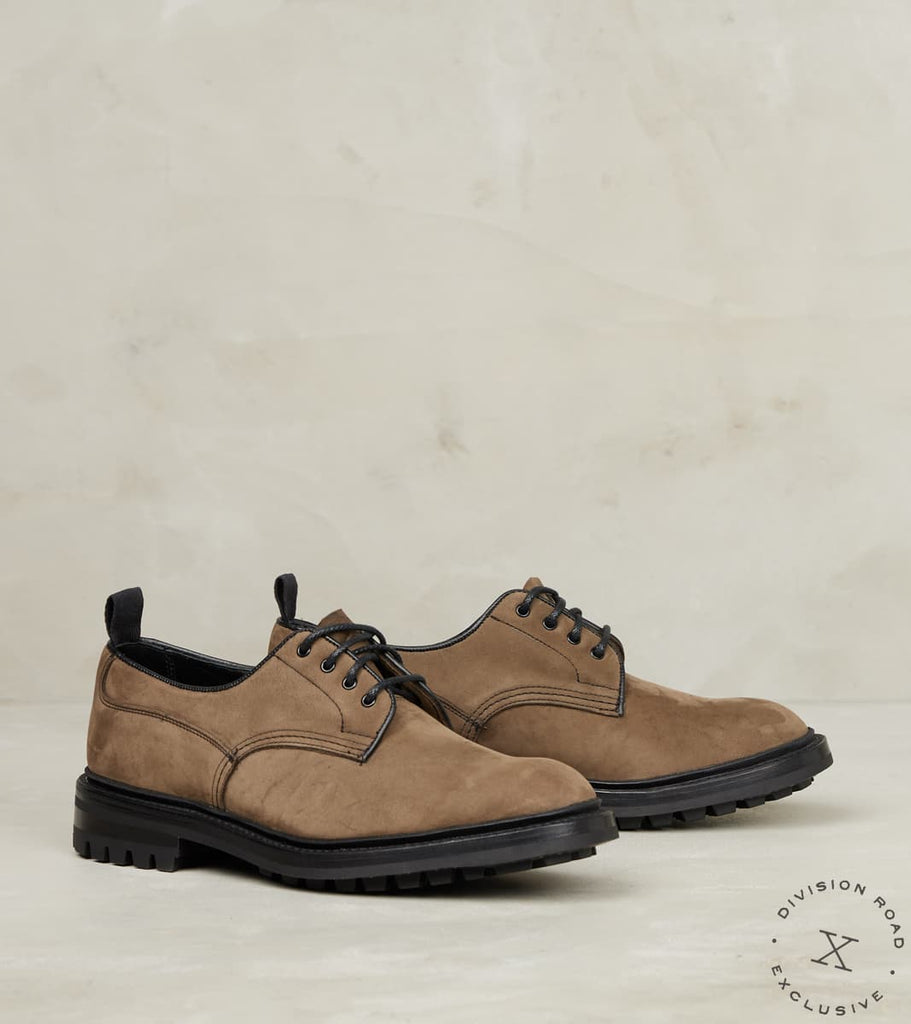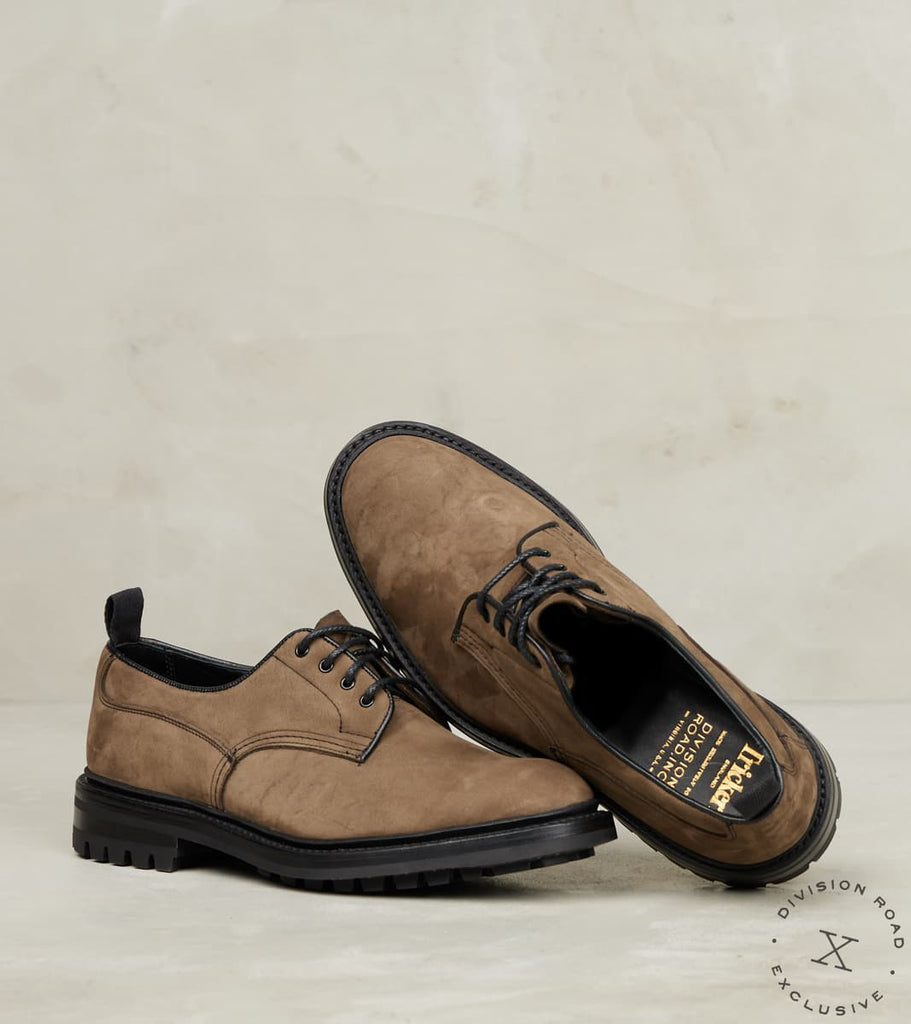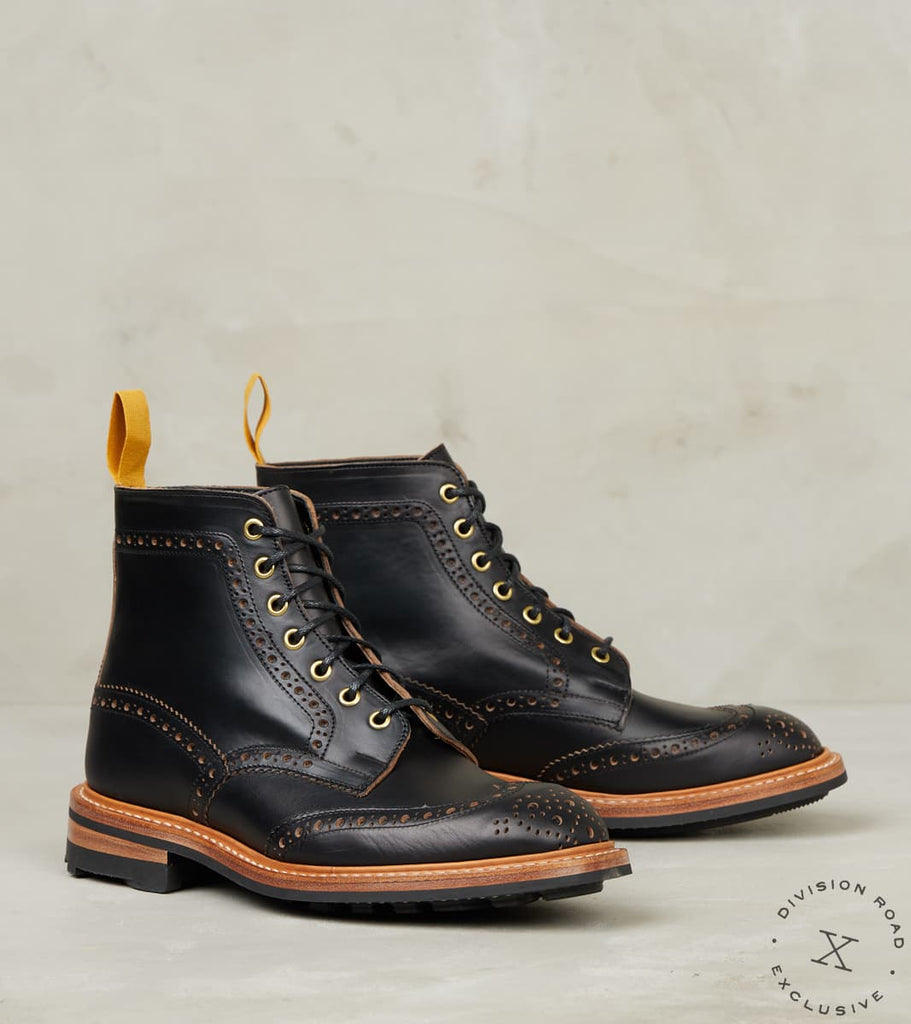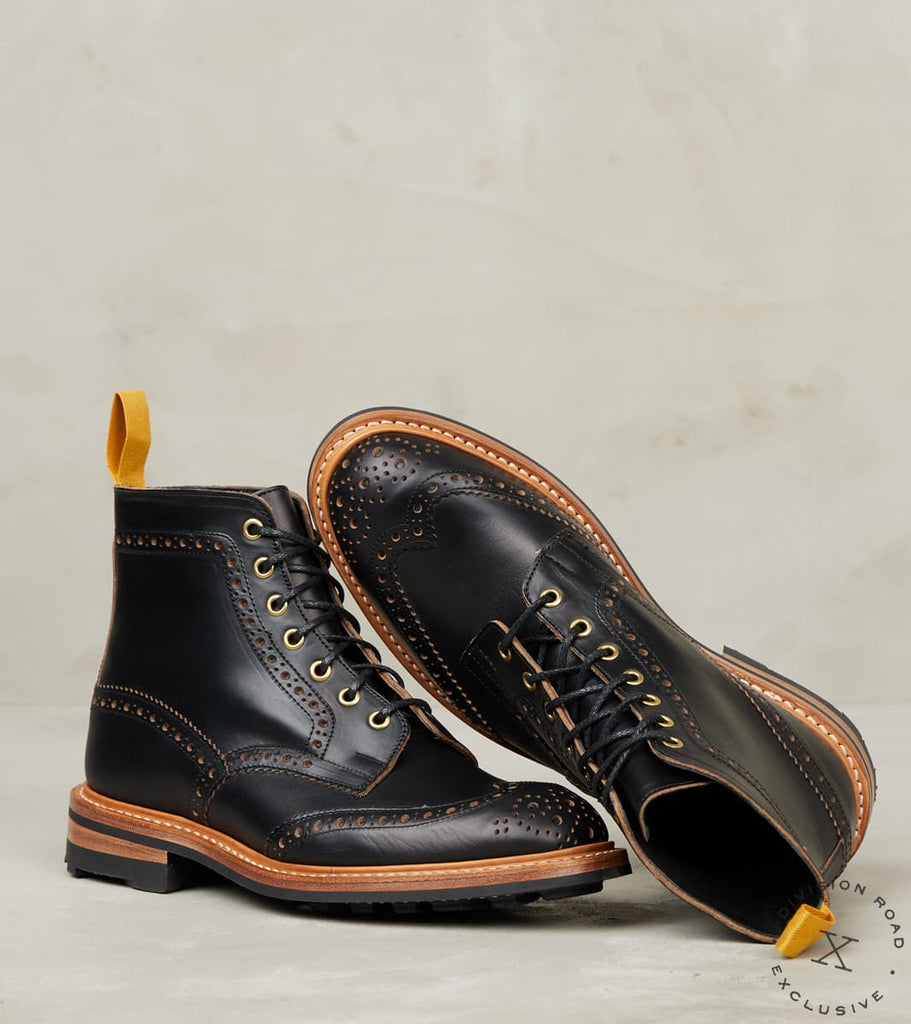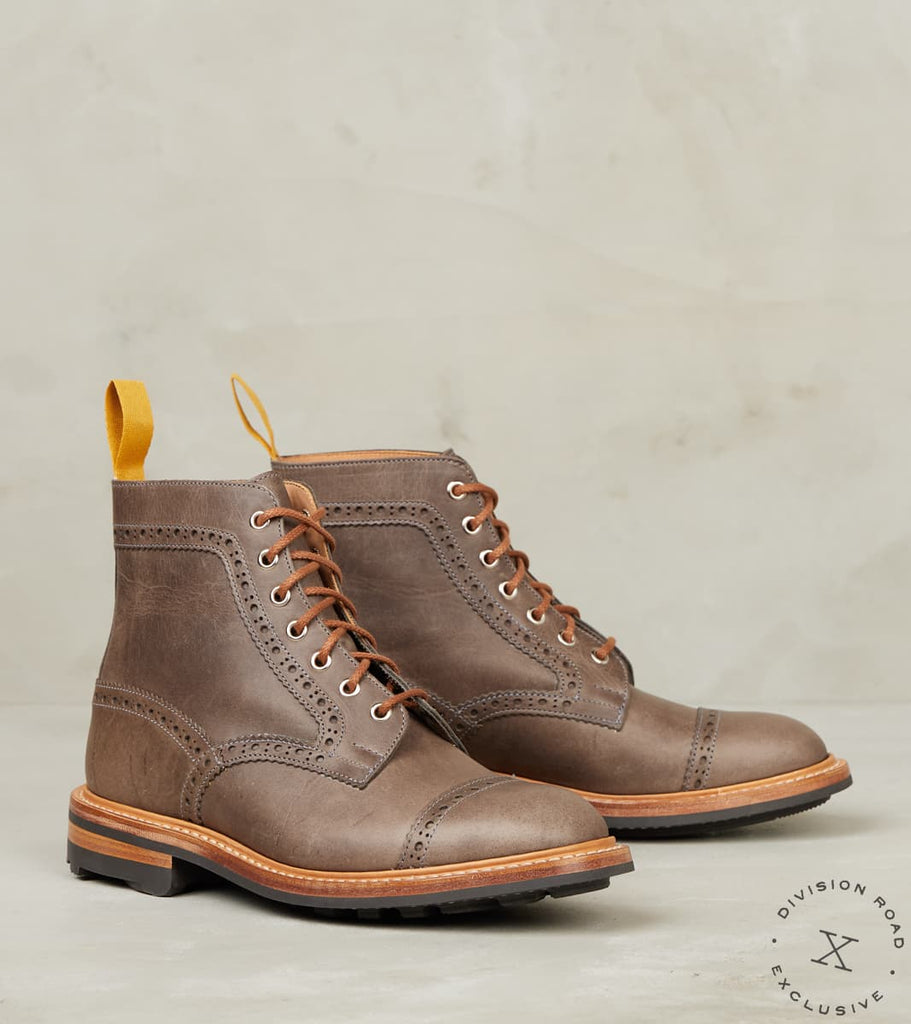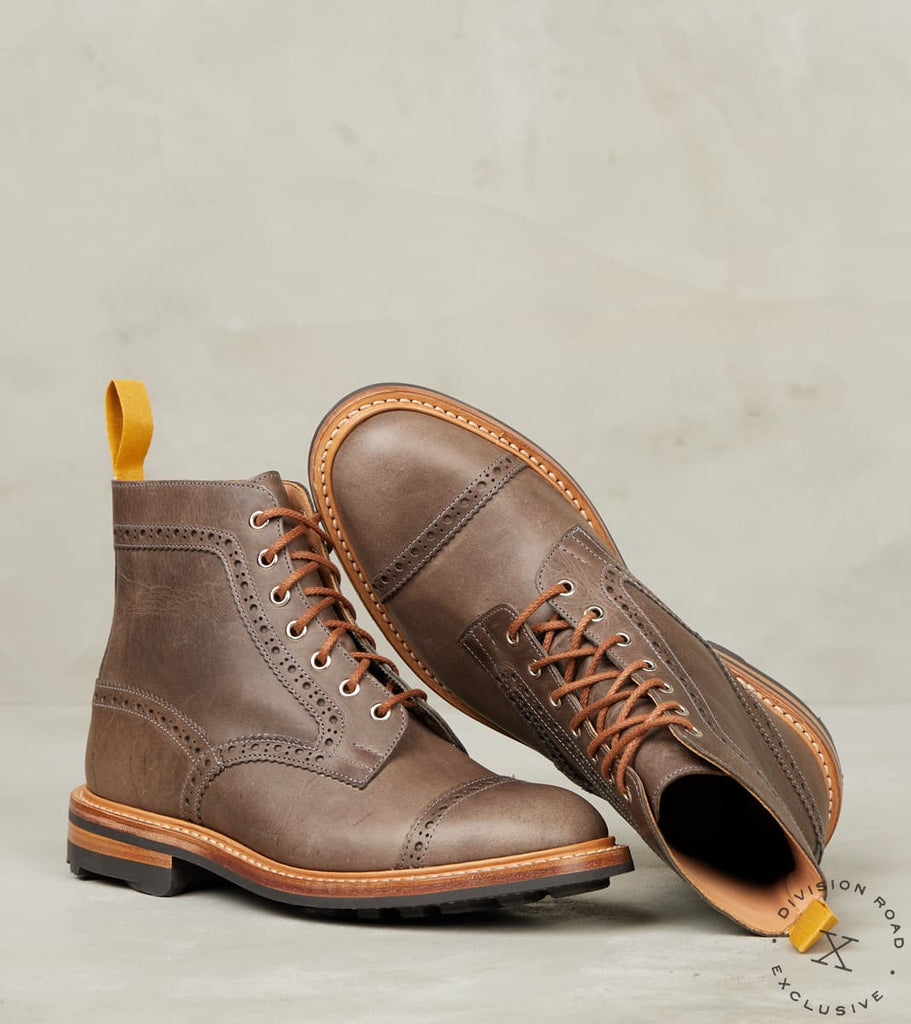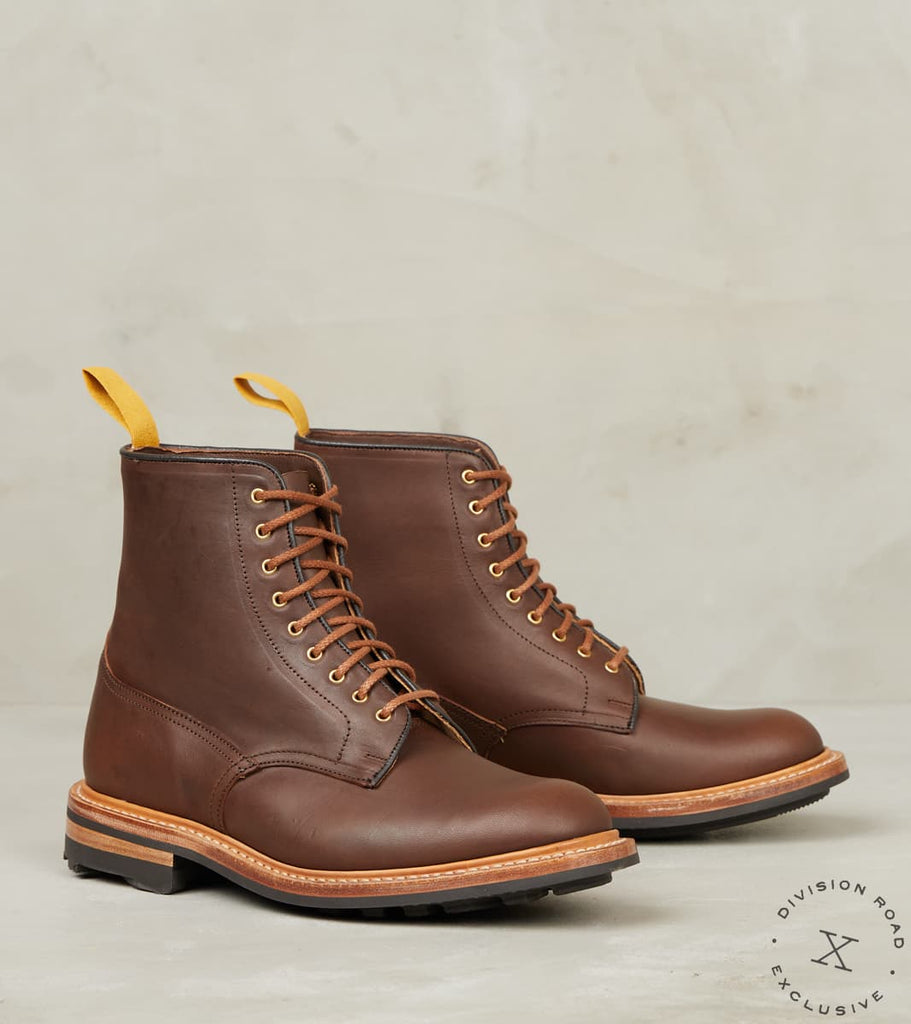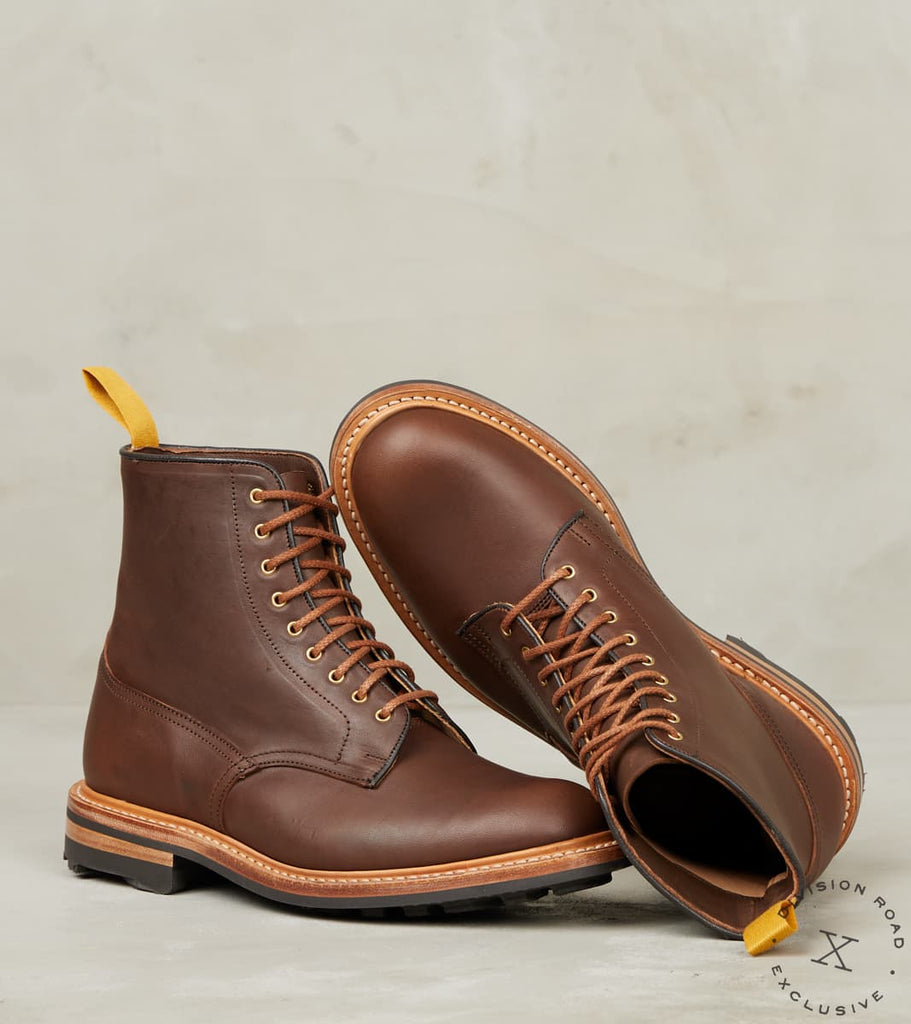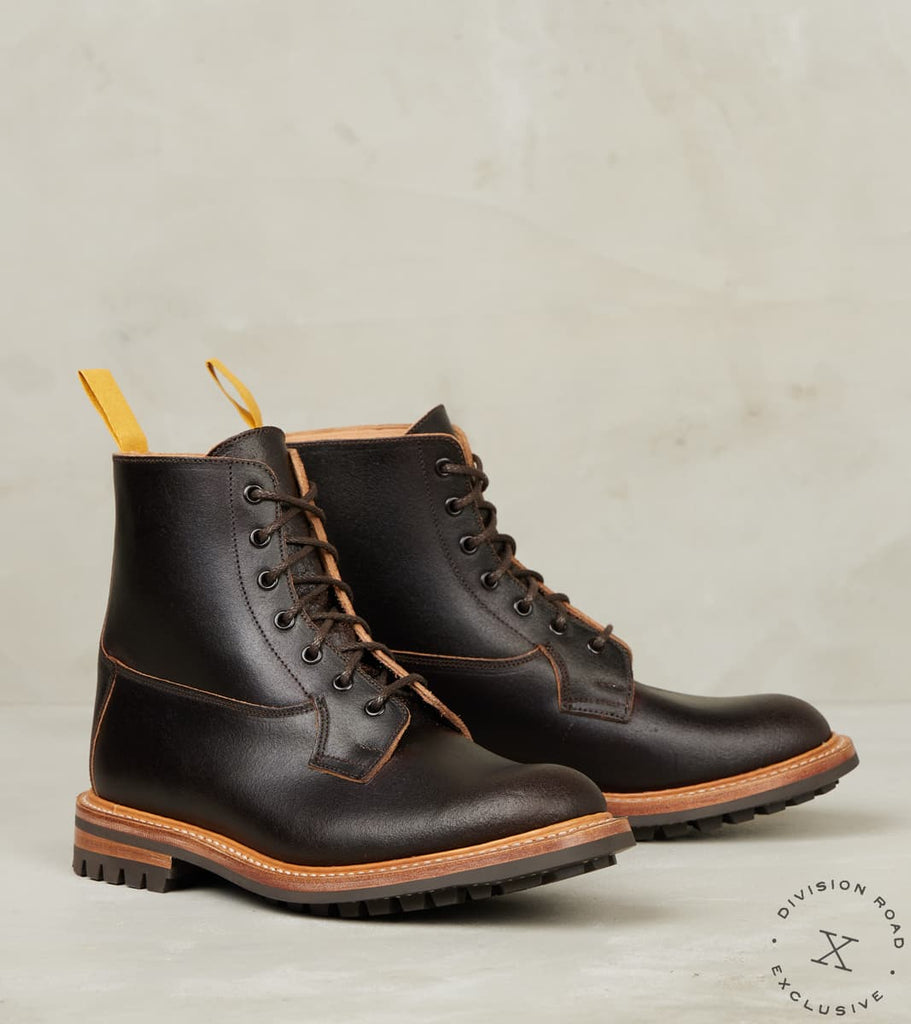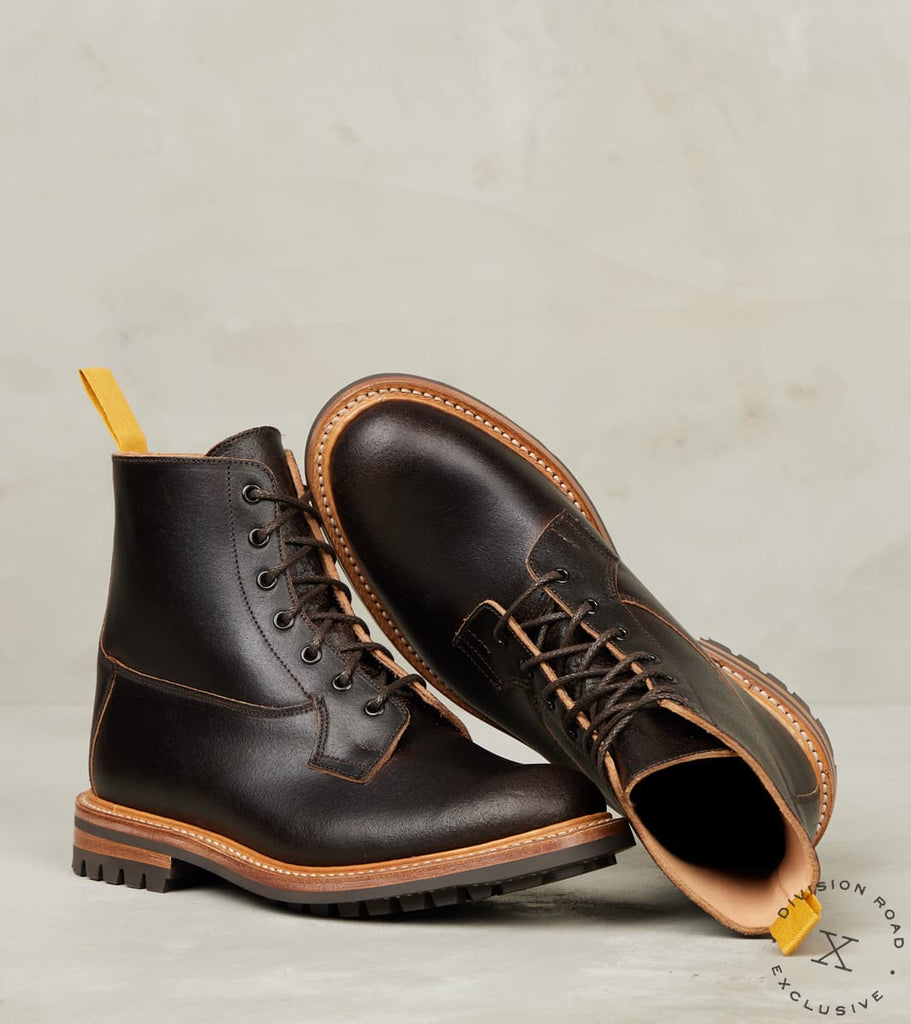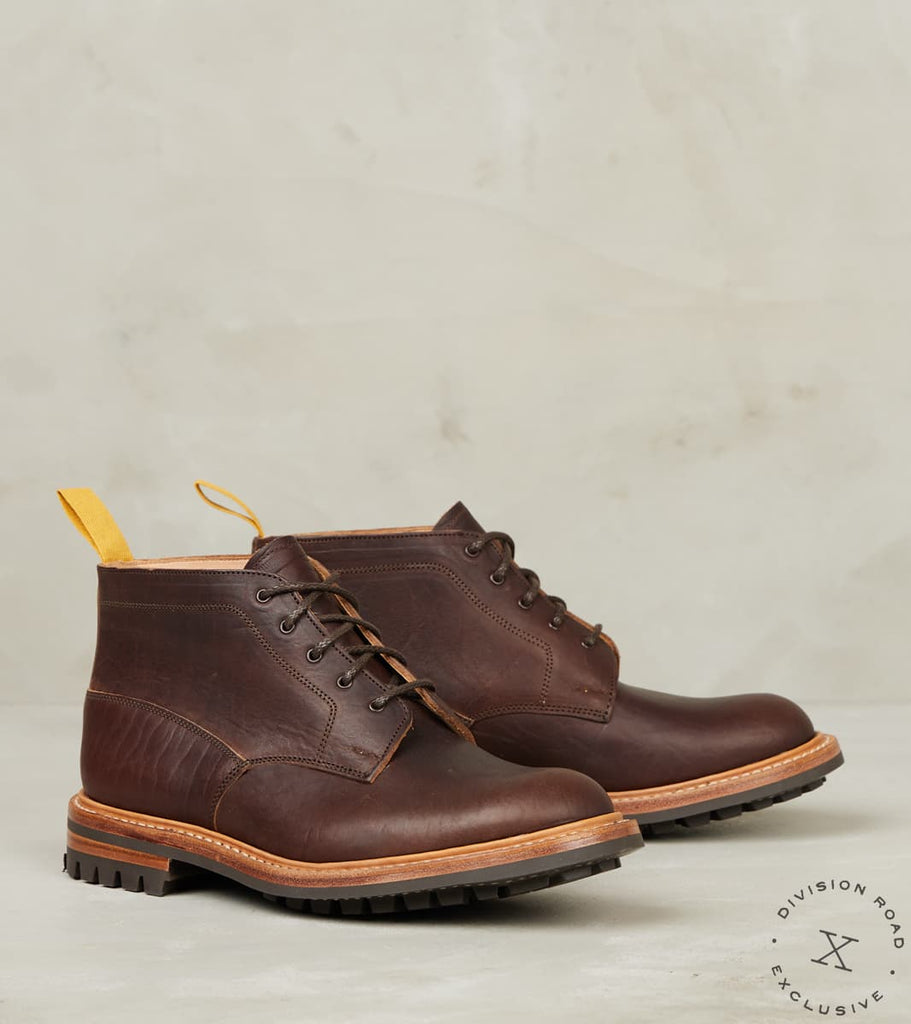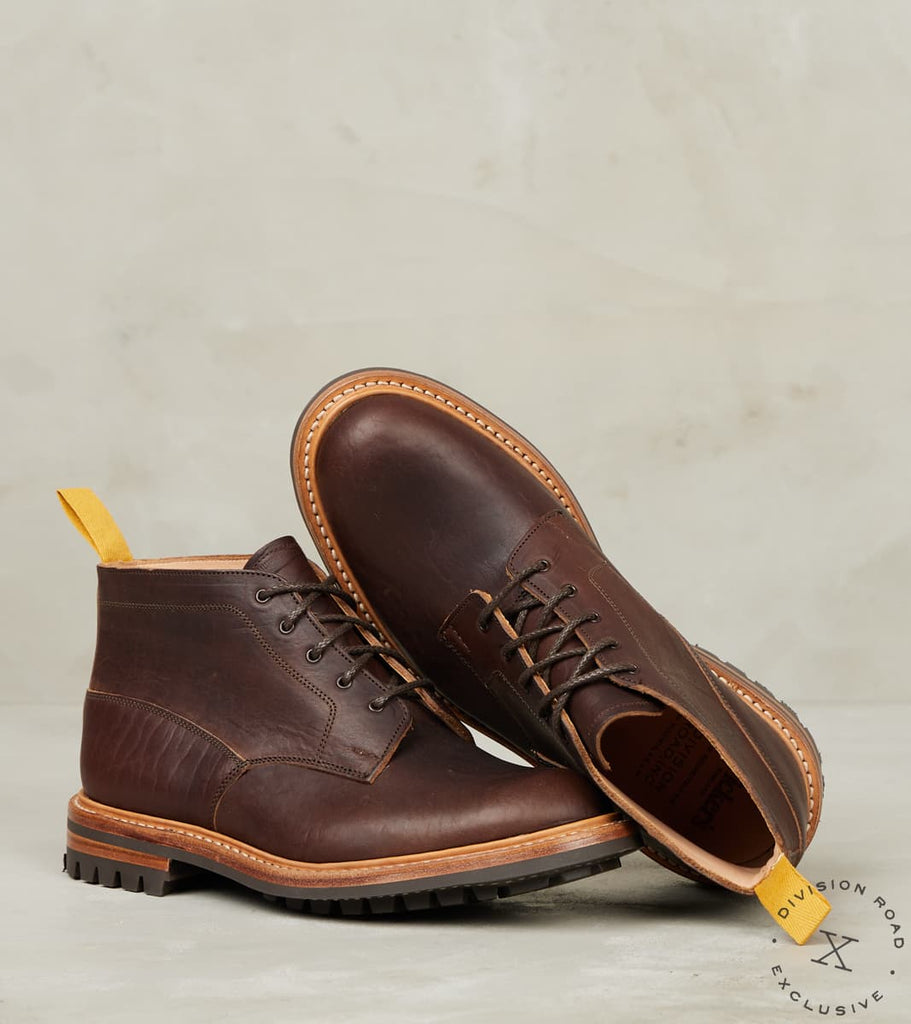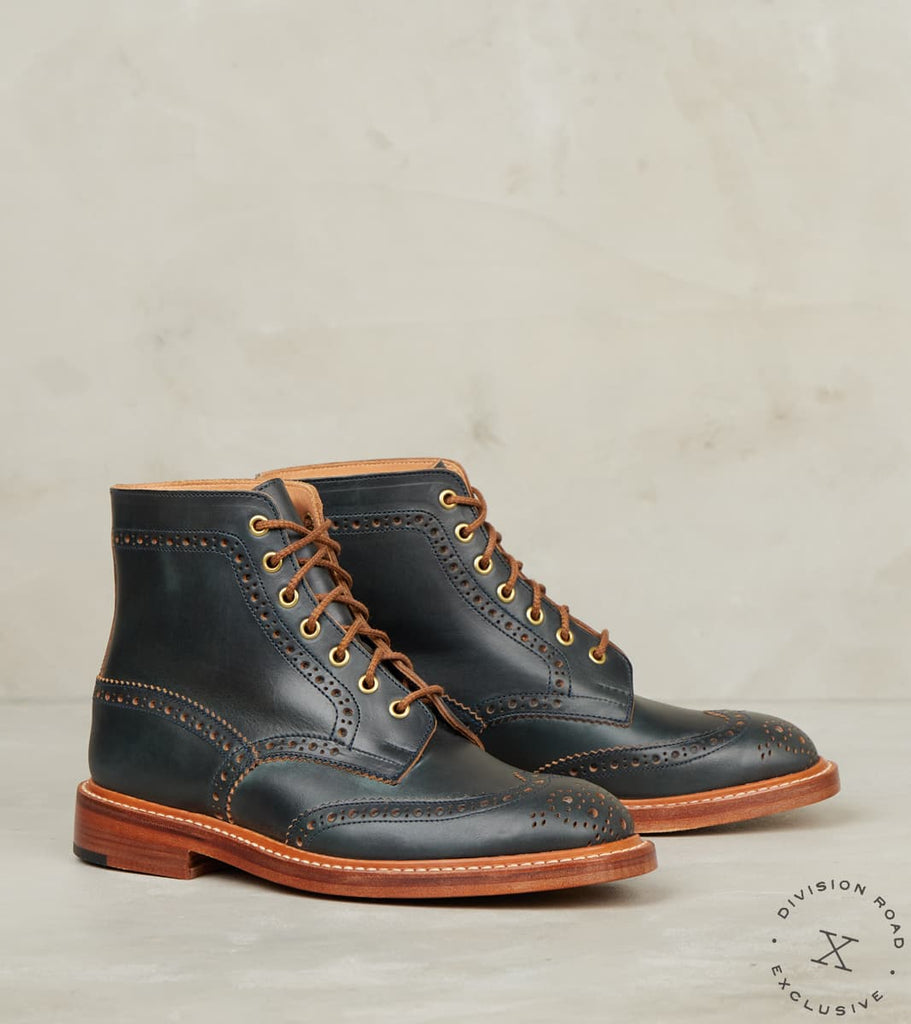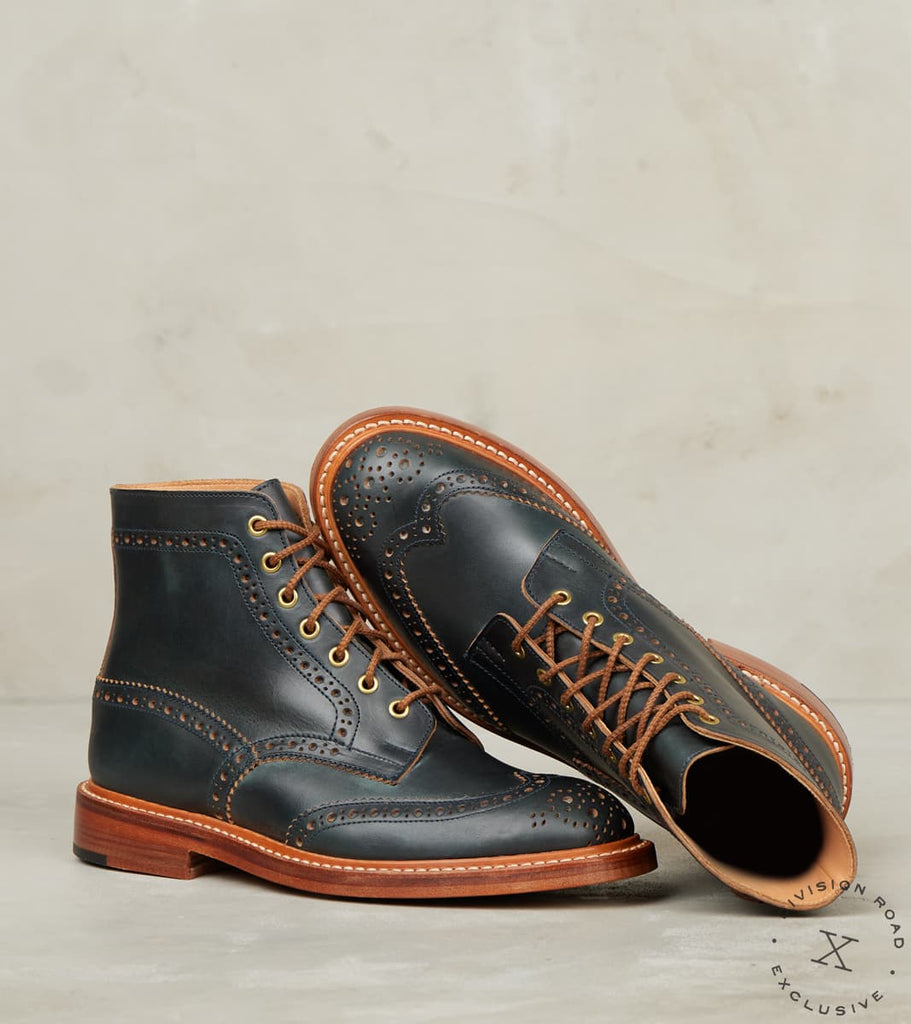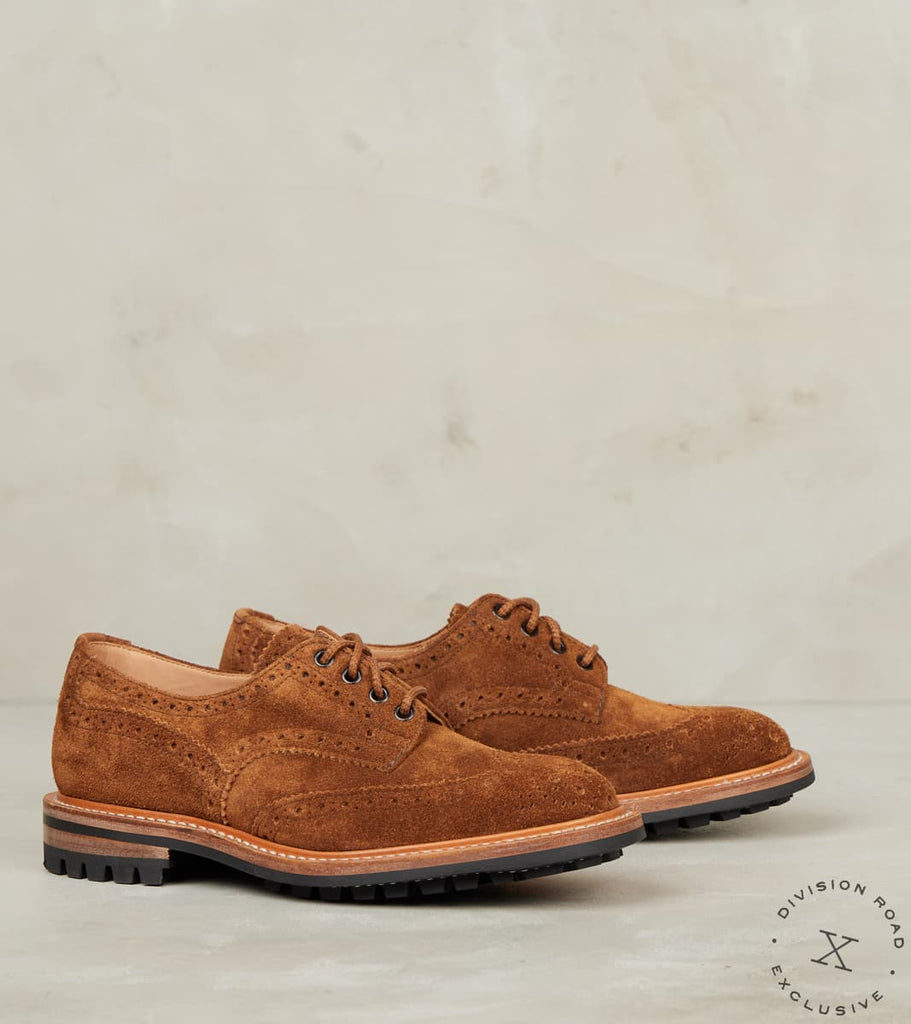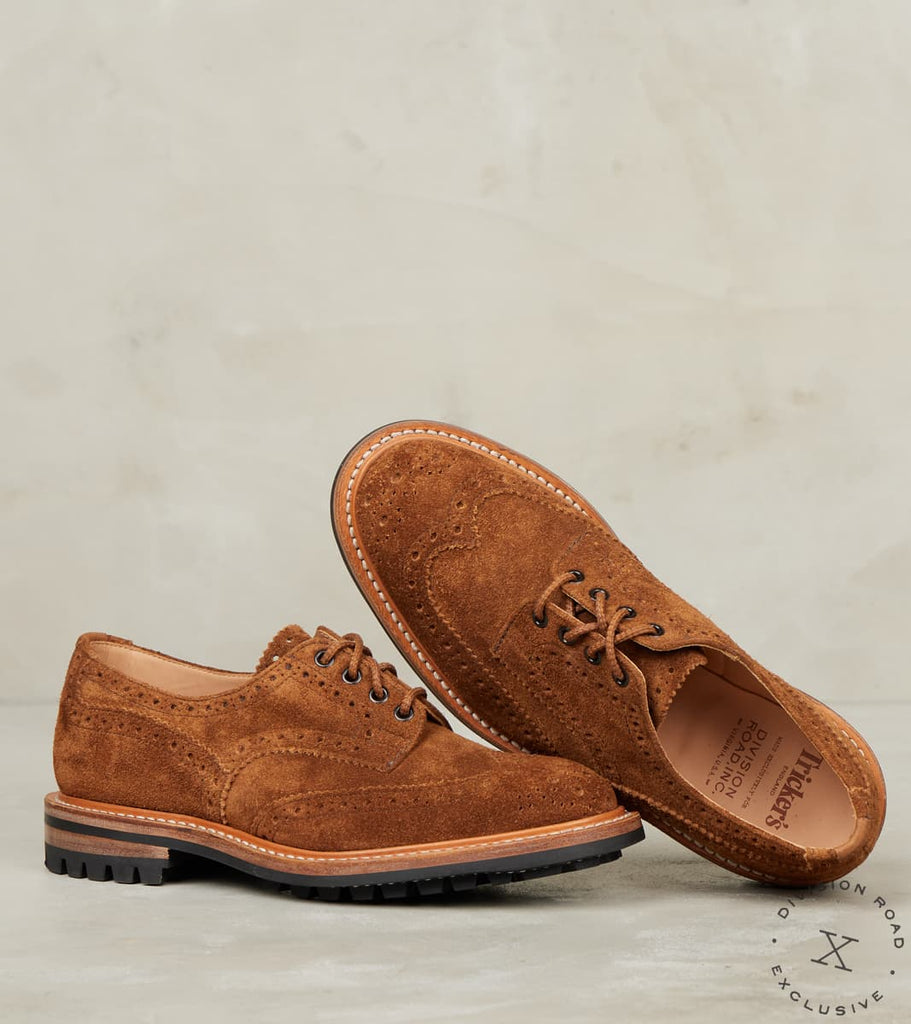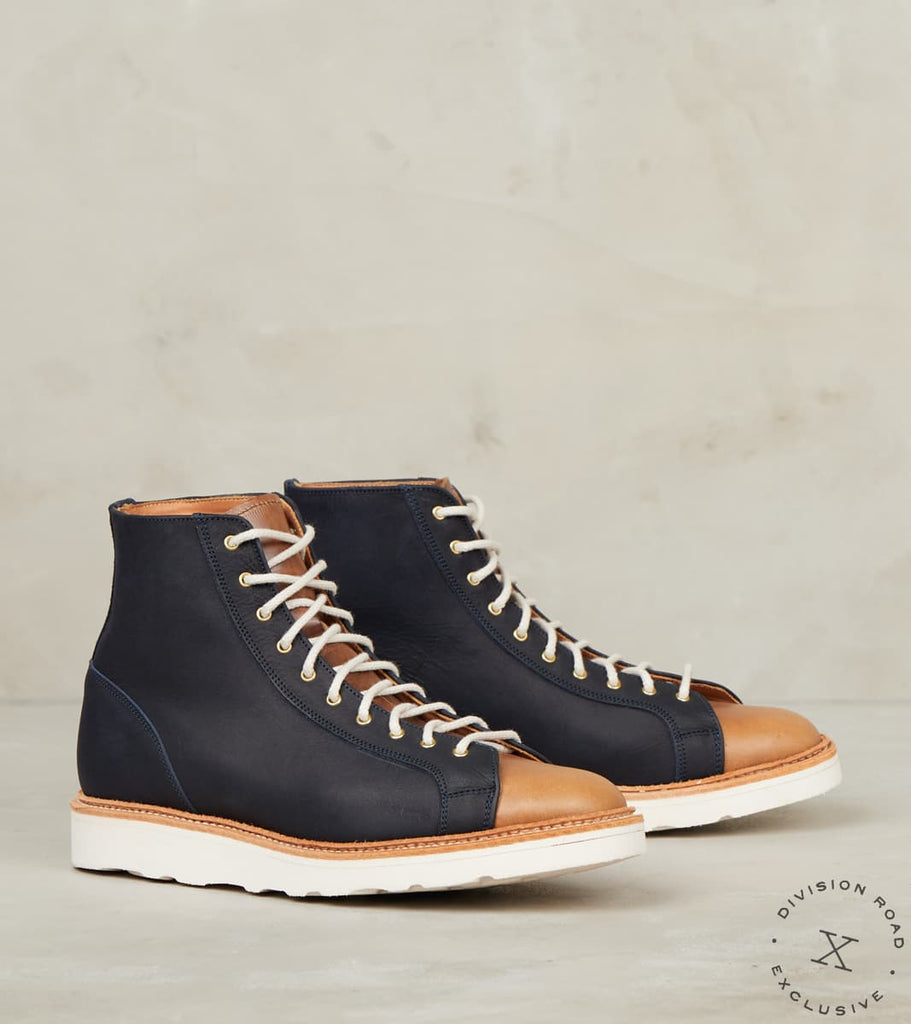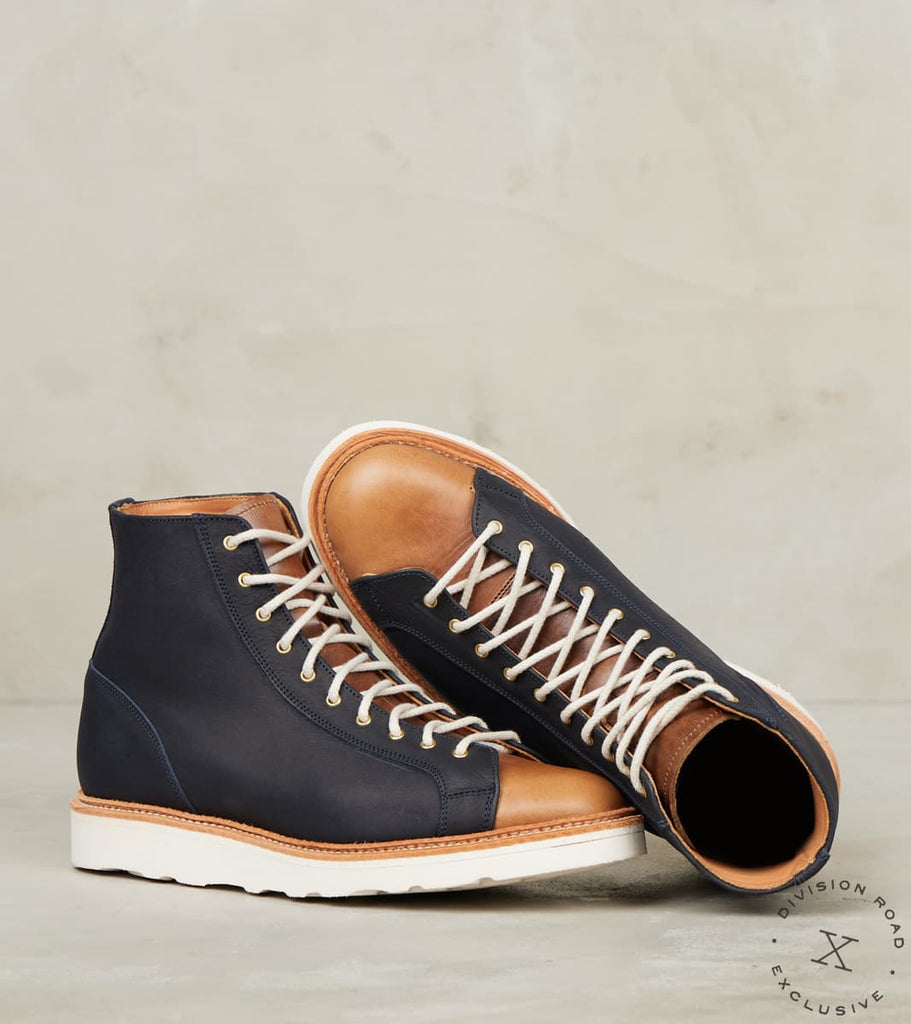British Born Heritage
As heritage enthusiasts, we embrace the specialties of producers in our business and how they are informed by history. Not only do we love the products these makers produce, but the stories behind them as well. At Division Road, we aim to be the bridge between sourcing and developing the finest products, and matching those products to the right person while telling the tale of how it all came to be. Each manufacturer has core competencies that often are defined by the lineage and progression of the business; and, when explored, these evolutions by brand, region, and specific manufacturer can be traced and charted through historical and cultural events. We look for these stellar producers in footwear, denim, shirt making, knitwear, outerwear, and material specialists whose products always seem to be drawn from the past while looking to the future. Thus we bring you the best Country Boot maker in England and the best wild animal and suede tanner in the world: for footwear touched by regional culture, historic events, and brand evolution that culminates in a collection for today, inspired by its legacy.

One of the sources that we and our re-buildable handgrade footwear makers often rely on is the Charles F. Stead Tannery, known for over a century to produce some of the finest leathers in the UK. Anyone in our market knows the treasured Horween Leather Co., the crown jewel of US tanneries, and some are well aware of the enigmatic Guidi leather from Italy, but there are many other lesser known tanneries throughout the developed world that yield equal quality in their own exclusive techniques, recipes, and leather types. Much like the footwear commonly associated with these producers, each one has distinct areas in which they excel. While we’ve told the story of some, we wish to bring C.F. Stead into focus as one of the finest suede, kudu, and waxed leather producers around, and one that we respect and trust equally in this field.
Meanwood Valley in Northern England’s Yorkshire county used to be home to many tanneries, due to the soft water supply of Meanwood Beck. After learning best practices in business from his mentor, in the early 1900’s Charles F. Stead took over Sheepscar Tannery. The facility dates back to 1823, and with much of the original structure and layout preserved it is still utilized to this day. The tannery’s main capabilities in 1904 were based in domestic sheepskin, along with processing and dying rough vegetable tanned skins imported from East India.

Soon after his acquisition of Sheepscar, Charles added the necessary equipment for chrome tanning that expanded the ability to create a wider variety of recipes and tan a wider variety of hides, all of which could be produced under one roof. In the early 1920’s, English style was dominated by suede shoes and accessories to denote a causal and opulent lifestyle for which the monarchy was known, and the tannery refocused their lines to keep up with this booming trend. Then, misfortune struck as Charles F. Stead was killed in an automobile accident and his son Phillip, at the ripe age of 22, took control of the tannery business. With an inventive passion, Phillip began nimbly and strategically developing the business to be a fully-fledged operation, adding proficiencies in tanning Deer and Buck skins, and expanding the suede, split and nubuck grain offerings from their sheepskin and shearling past.
As leather jackets, boots, and shoes became fashionable through the 30’s-40’s in styles inspired by popular culture and film, WWII broke out and C.F. Stead went from producing leather for iconic motorcycle jackets to RAF Bombers and everything in between. Stead identified a gap in the market and began to focus on tanning unique animal hides and reversed full grain suedes as the core of their offering. Through the next several decades the ups and downs of the industry continued, while fashion evolved with leather jackets and footwear as the centerpieces of many wardrobes. C.F. Stead furthered his company’s progression by acquiring other nearby tanneries, which in turn broadened C.F Stead’s capacity to become Britain’s signature leather producer while staying true to a core identity.
The late 1990’s through the early 2000’s led to experimentation within the industry, causing Stead to apply its tanning expertise to a range of skins from the antelope family, the first of which was Kudu. Bringing business to communities in several African countries, C. F. Stead was able to obtain skins collected in the annual wild antelope cull. These hides contain natural blemishes, cuts and scars caused by the environment, yielding a matchless product that has a combination of softness and strength, with no two skins being the same. CFS is now known as the signature and finest producer of these unique hides in a range of recipes of new and old waxing techniques that enhance the natural grain. Still family owned well over a century later, with the original Sheepscar and acquired Strensall facilities still in operation, Charles F. Stead brings us some of the most resilient and luminous suedes, perfected waxed leathers, and a range of Kudu tannages that accomplish anything they set out to do with comfort and quality at the foundation.

To complete this distinctly British story, we bring you a Tricker’s x Division Road exclusive collaboration collection that uses the nap bright suedes and dull waxed leathers sourced specially for this series. In a vintage palette to communicate the history of the C.F. Stead and Tricker’s connection, we put together four styles that have the Division Road spin on time-tested classics.
Looking to British tradition for influence, we took the traditional brogue-heavy Stow Boot and Bourton Shoe and paired them with the Janus tanned Kudu Reverse, with its brilliant and luxurious nap over traditional fine detailing. As a full-grain suede, this Kudu leather has a flexibility and resilience that is the best in its category. To highlight the rugged and wild nature of these C.F. Stead hides alongside the hardworking heritage of a Tricker’s, we developed a new pattern variation, the Dean Boot, made as an austere version of the cap toe brogue in Stead’s Unicorn tannage. Creatively named to emphasize its premium quality and unique look, the Unicorn is a Scandinavian Elk leather that has been nubucked and waxed for a matte finish with pull-up qualities. Further, we bring the Low Leg Logger in a Waxy Kudu, which is fully infused with waxes to yield a simple, outdoor-ready boot. Rich with hide characteristics that cannot be imitated or replicated, the Waxy Kudu preserves its story in a design ready for even more patina developments.
Each of these make ups is formed on the versatile and accommodative dress-styled w2298 Last. This provides for an elegant shape and an accommodative fit for which the English are known. They are then fixed atop British made Goodyear Commando soles to give them off-road performance with an aesthetic balance, true to Tricker’s signature formula. Next, we contrasted the leathers with a Natural Barbour welt and midsole, while maintaining balance with the tonal accents of matte brown eyelets and laces to allow both the leather and styling to speak for themselves.
With an elevated casual aesthetic from the ruggedness of the Logger to the sophistication of the Bourton Derby, this collection is inspired by an authentic heritage story, suited for the modern gent in search of reliable styles and builds. What makes this British born collection so extraordinary is that it highlights the importance of story through continuous respect for the past. From leather to Last to sole, each production step preserves hard-earned integrity, immediately recognized in the details of these pieces. Both C.F. Stead and Tricker’s have carved out their legacy through generations, which inspires us and our customers to carve out our own, standing on the most solidly built foundation we have, footwear.




































